
Subscribe below if you want real-time updates to relevant problems farmers are facing in the industry and the strategies they are using to overcome them.
Subscribe to Newsletter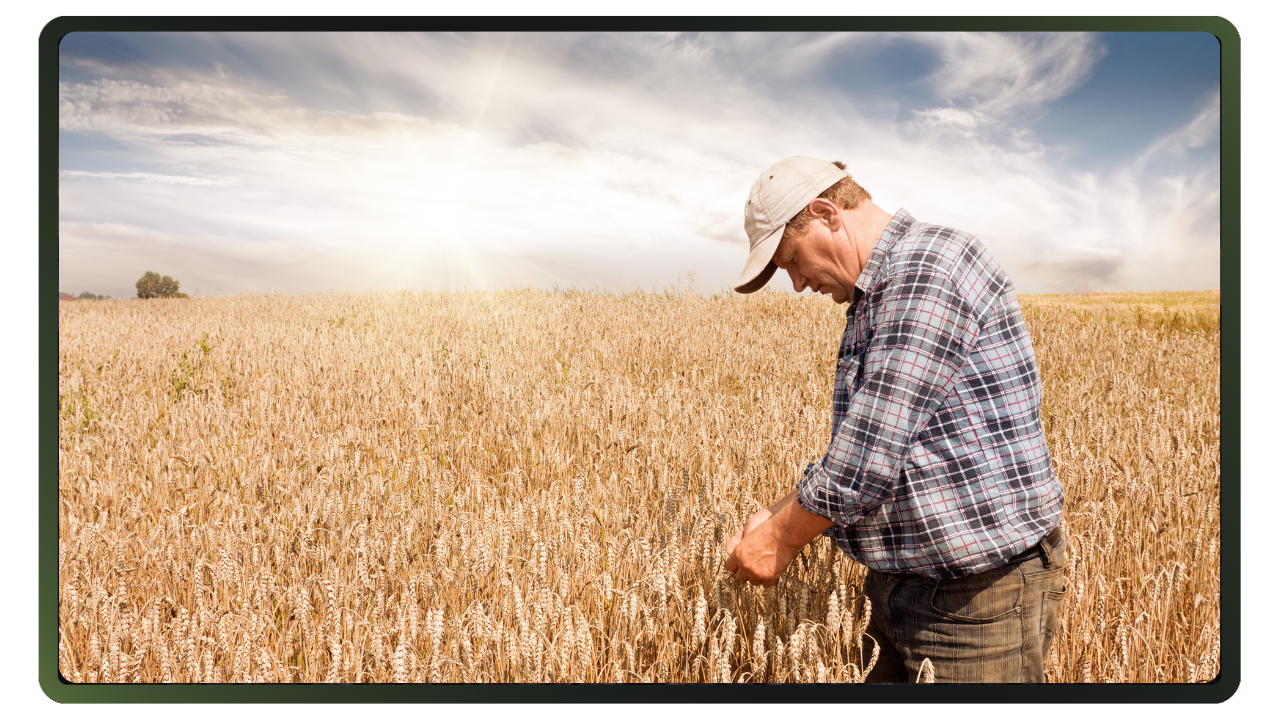
If I asked you right now—today—how your farm is going to finish the 2025 financial year, could you give me an exact answer?Most American farmers can’t.They have an idea. They have numbers floating around in their head. But when it comes to a hard balance sheet or a projected cash flow for 2026, they are operating in the dark.
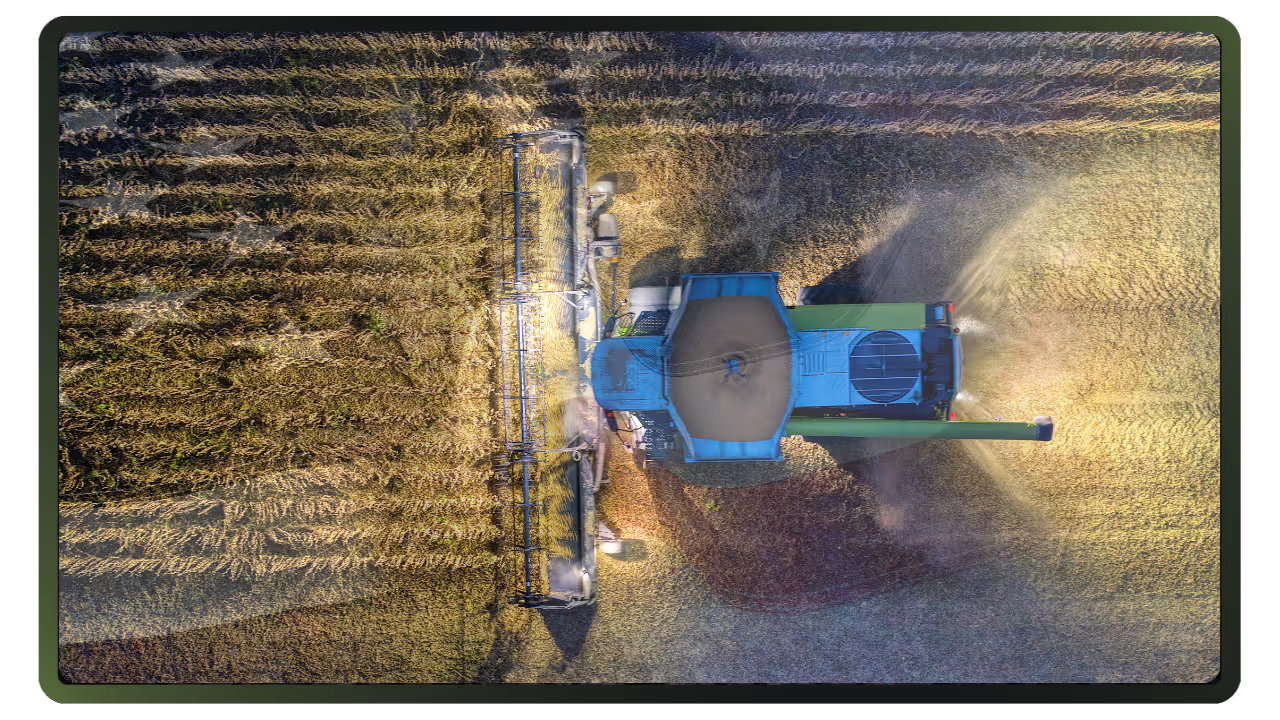
For farmers facing the squeeze of high input costs and volatile markets, relief is finally on the horizon. On December 8, 2025, the USDA announced a massive $12 billion "bridge" package designed to help operations survive the current financial gap until long-term policy changes kick in later in 2026.Here is the breakdown of the Farmer Bridge Assistance (FBA) Program and the One Big Beautiful Bill Act (OBBBA), and what you need to do immediately to qualify.
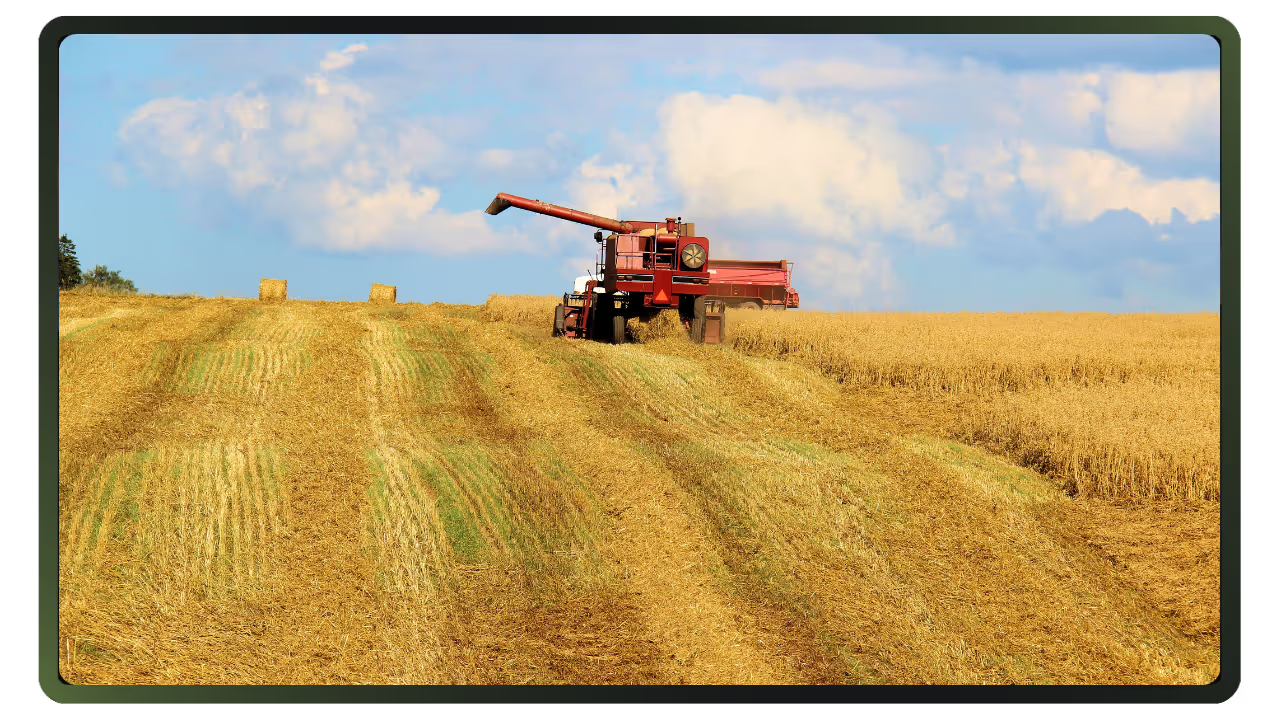
There’s a quiet storm building across rural America.You won’t see it on the news, and you probably won’t hear about it at the local co-op. But if you pay attention, you can feel it.It’s in the subtle stress when you open your books. It’s in the hesitation before you bid on that next piece of ground. It’s in the voice of every farmer who is quietly wondering: How much longer can we keep doing this?The truth is, farming isn’t just going through a rough patch. We are in the middle of a financial cycle that is about to test every single family operation in the country.If you don’t understand the three phases of this cycle, you risk ending up where thousands of others already have: buried in debt, out of cash, and wondering what happened.
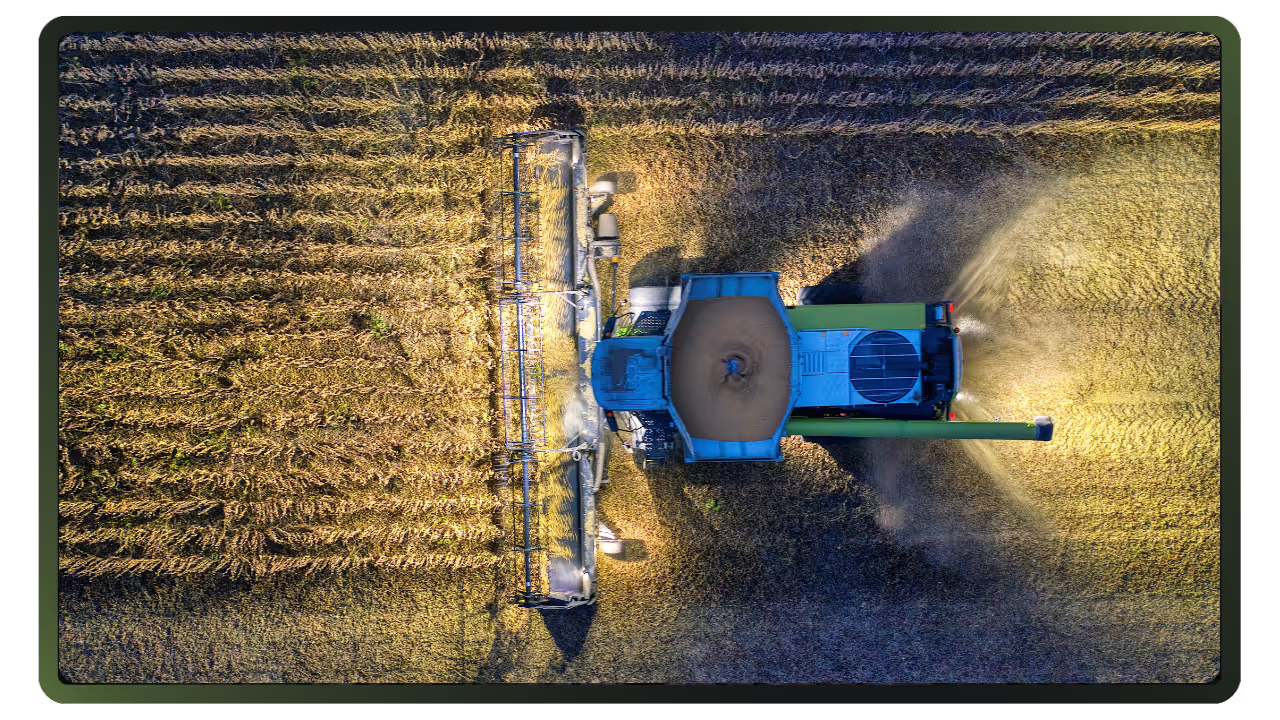
Have you ever wondered what truly motivates farmers, ranchers, and producers to put in those long hours, year after year? It's often not just one thing; it's a powerful mix of two very different, but equally strong, core values.

When it comes to running a farm or ranch, most of us are conditioned to measure success by profit. How much did we make this year? Did we beat last year’s numbers?But here’s the hard truth: profit isn’t the metric that will determine your long-term success.Fast forward 10 years from now. Ask yourself: will you really care about what your operation made in 2025? Probably not. What will matter is your equity—the real value you’re building in your farm, ranch, and legacy.

Ag banks are tightening up more than ever right now.It’s happening quietly, but make no mistake — banks are slowly exiting the ag industry.And that’s putting massive pressure on family farms across the country.So the real question is this:What can you do to protect the future of your operation during this time of uncertainty and credit tightening?
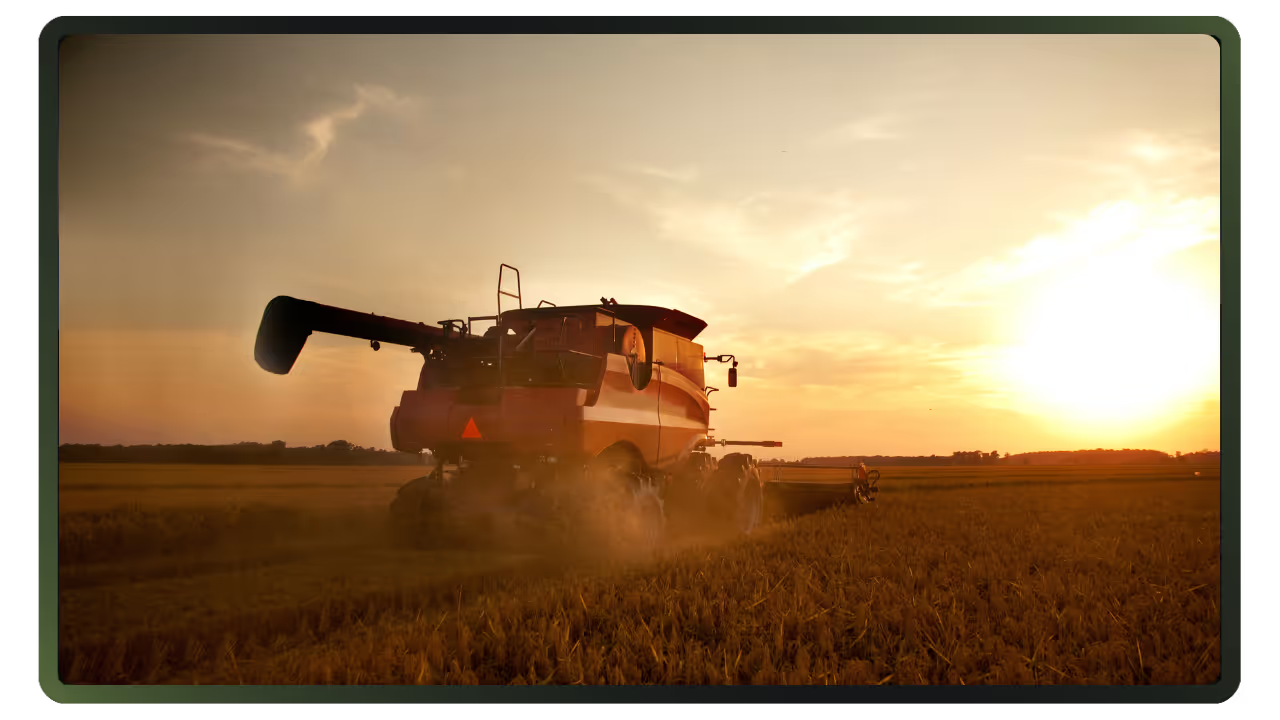
If you read most headlines today, you’d think the agricultural credit market in the U.S. is thriving. Articles boast about strong lending environments, plenty of money flowing, and banks eager to support farmers with new loans.

Back in 2019, I had a conversation with a member that has stuck with me ever since. He said something that I’ll never forget...
.avif)
I’ve seen too many producers go down at the top of the market.And I’ll say this as directly as I can — cattle producers are some of the worst speculators on the market.Not because they’re stupid or careless…But because too many are making decisions based on emotion and neighbor talk rather than data and strategy.

When it comes to passing a farm from one generation to the next, many succession experts focus heavily on relationships: Can the family get along? Can siblings or parents communicate effectively? While these are important, there’s a far bigger factor that often gets overlooked: profitability.
.avif)
Running a farm with family can be one of the greatest blessings—and one of the toughest challenges. The overlap between family roles and business roles often creates tension, especially when tough financial decisions are on the table. One of the most important conversations you’ll ever have on your farm usually starts between a father and son (or any family members working together). And it’s this:
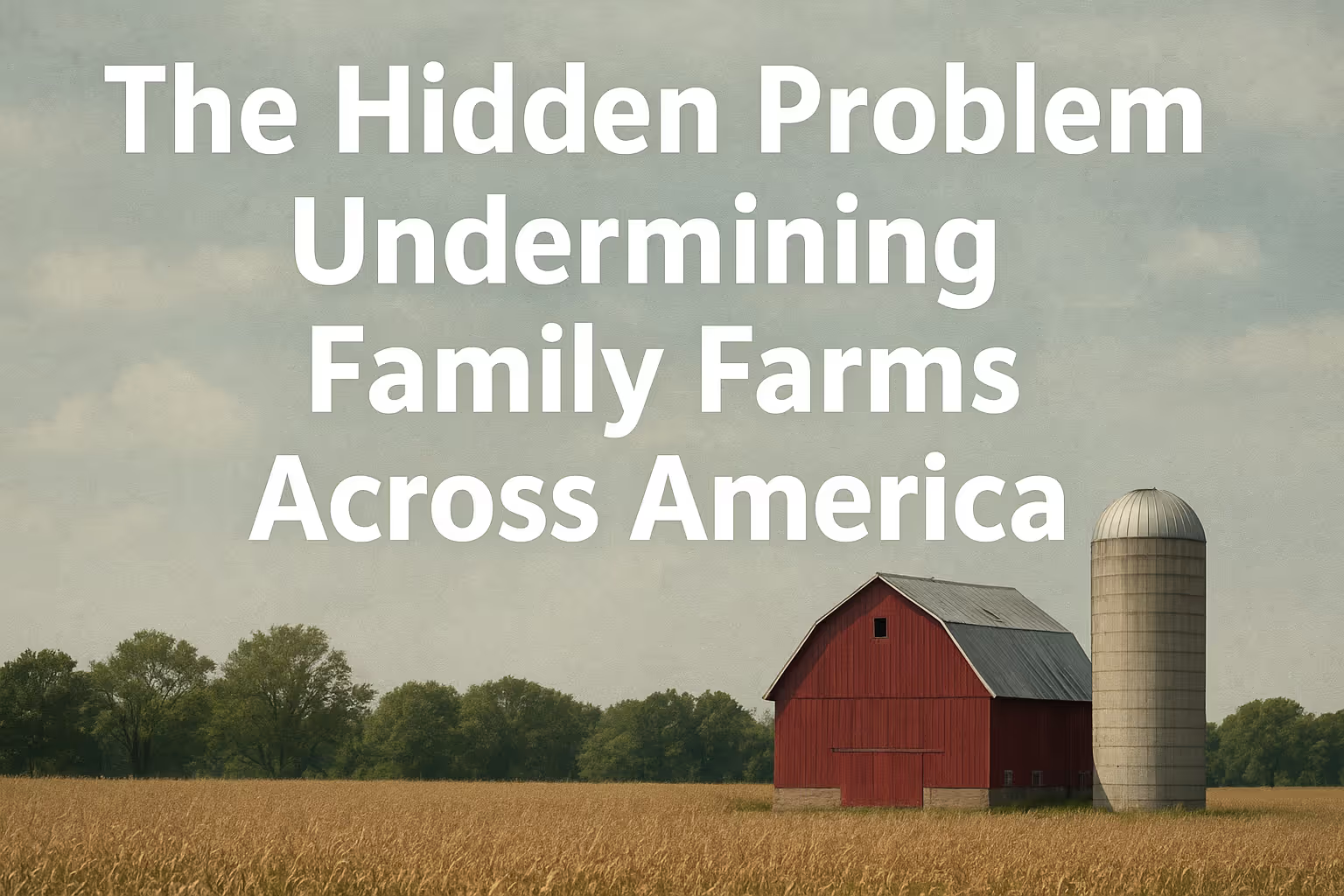
Since 2019, Legacy Farmer has worked with nearly 500 family farm operations across the United States and spoken with more than 3,000 farmers and ranchers. What we’ve discovered is striking: no matter the size of the operation or the region it’s in, the same hidden problem shows up again and again.
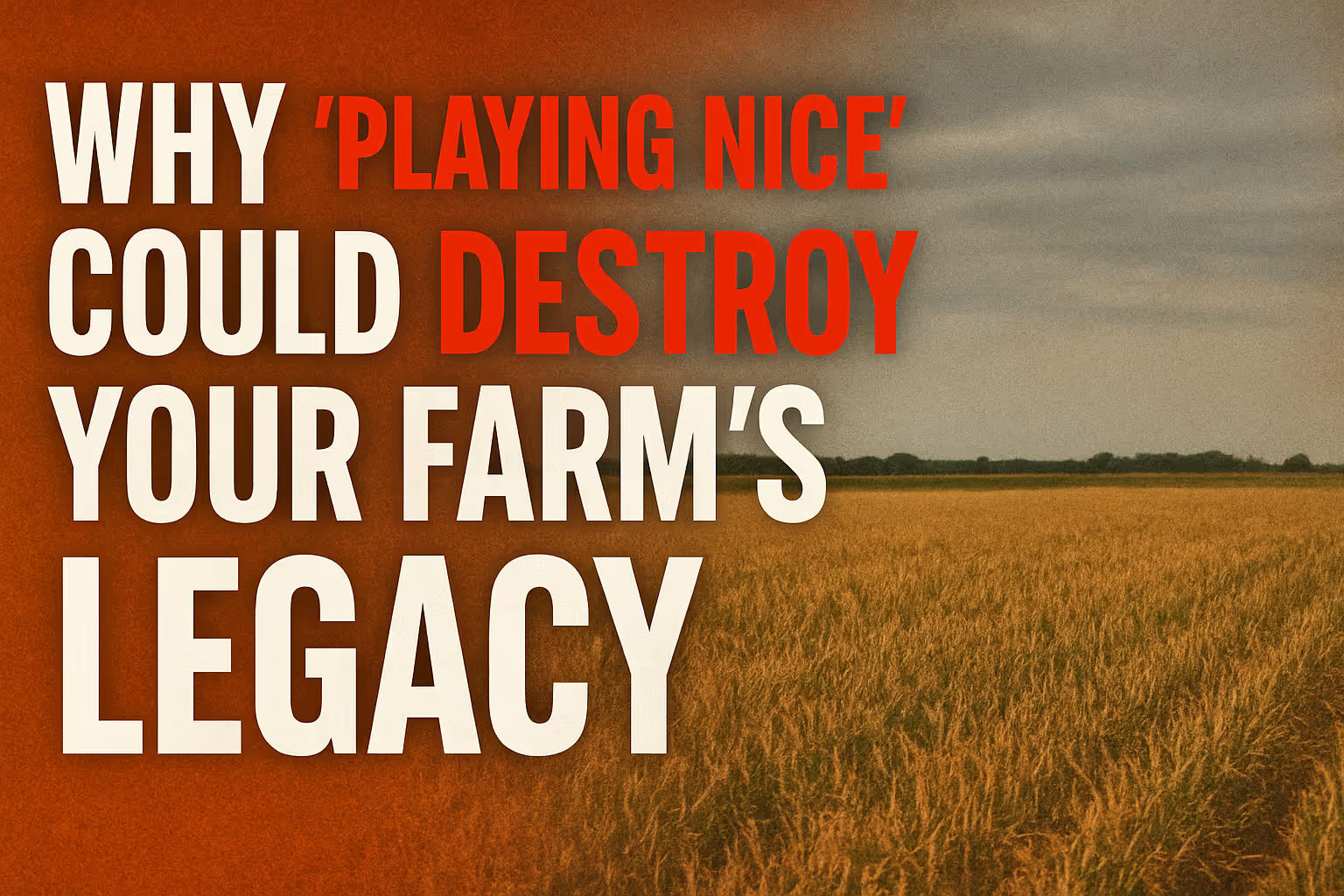
Most farmers today are too busy playing nice with their family to actually build a legacy that will last for generations. Here’s the hard truth: expecting the son or daughter who came back to the operation to somehow buy out all their siblings is a recipe for disaster.
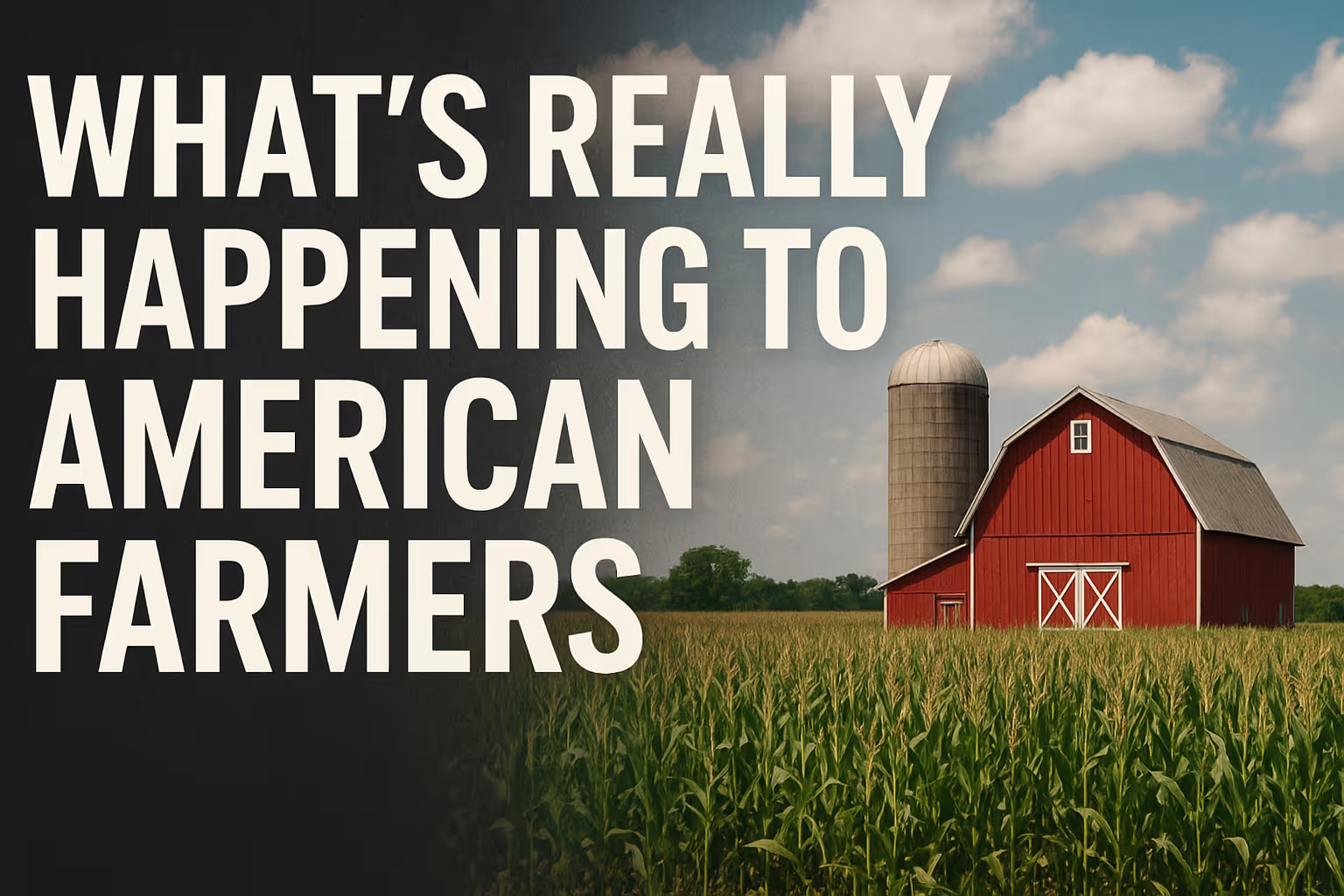
Every year, more family farms are going out of business. It’s a quiet trend, but the ripple effects are enormous. Grain stocks—corn, wheat, soybeans—are shrinking. Prices keep climbing. And while most people feel the pinch at the grocery store, the deeper reality is much bigger.

Not long ago, buying a new combine was a $350,000 decision. Big money, but manageable. Today? That same machine costs close to a million dollars. That’s the reality of modern farming: there are no “small” decisions anymore. Whether it’s buying equipment, managing inputs, or structuring debt, the numbers are massive—and so are the risks.
.avif)
When people think of American farmers, the image that often comes to mind is one of resilience, productivity, and hard work. And while that picture is true in many ways, there’s another side of farm life that often goes unseen.
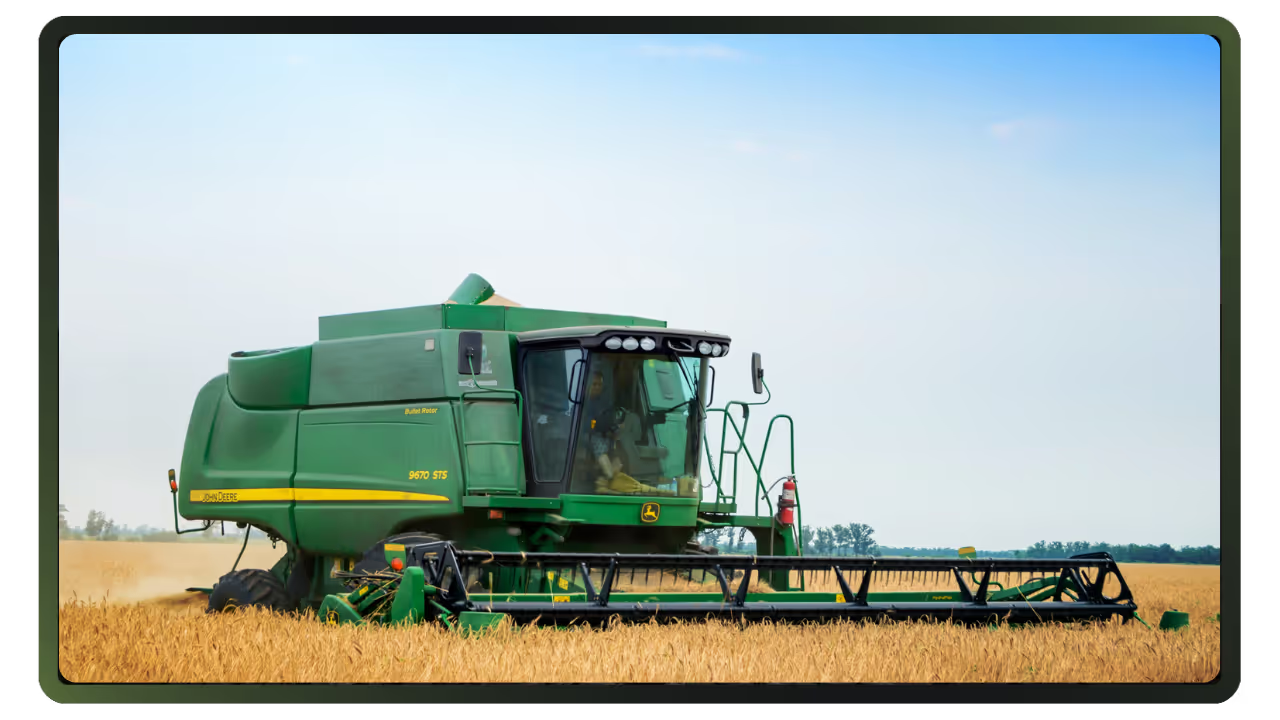
Drive through any farm community and you’ll see the picture of “success.” Thousands of acres farmed. Big shiny equipment. Operations that look like they’re thriving. But talk to those same farmers behind closed doors, and you’ll often find a very different story.
.avif)
I remember the exact moment everything changed. I was there the day my dad got the call: “It’s over. Everything’s shutting down. We’re done.” Just like that, decades of work were gone.
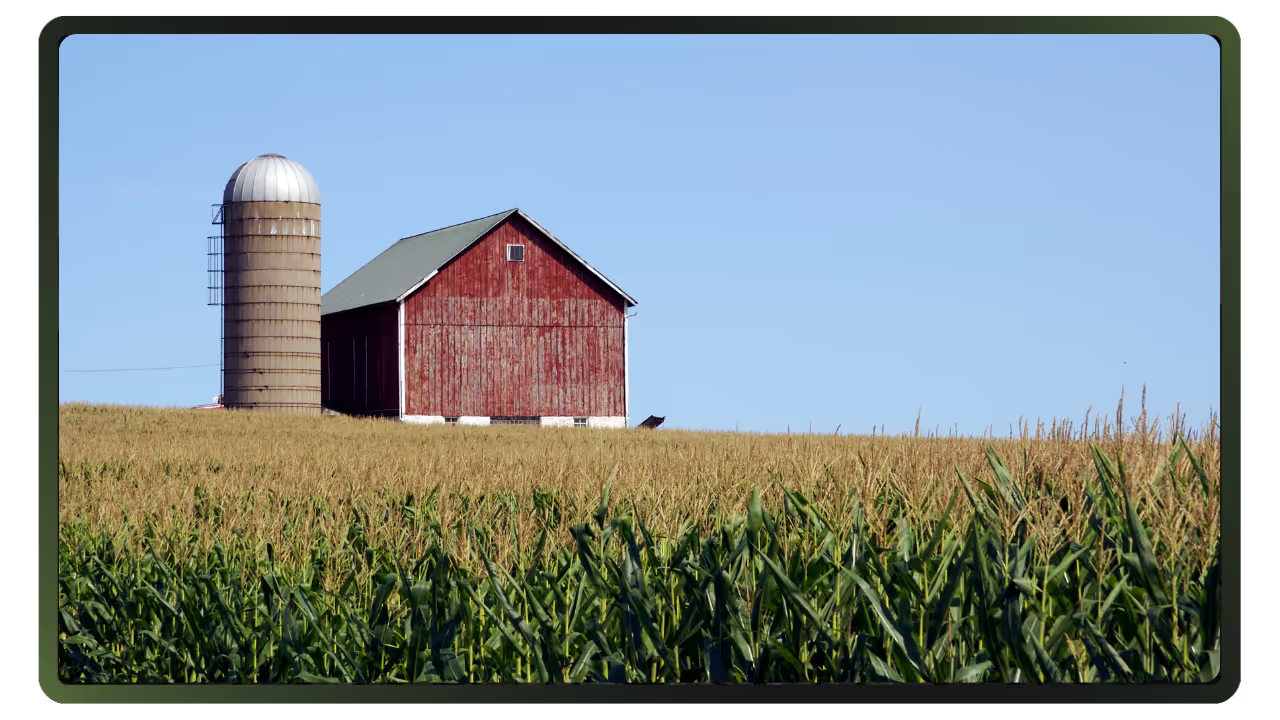
Growing up, I thought our family operation was a big success. From my perspective as a kid, it looked like everything was working. We had land, cattle, equipment—everything that signals a thriving farm. And on top of that, I was spoiled. I had the dirt bike, the toys, the lifestyle. I didn’t know any different.What I didn’t see—what most kids can’t see—was the risk my granddad was carrying on his shoulders. He was running a large-scale operation, managing big numbers, feeding all his own cattle, and keeping everything afloat in a way that looked effortless to the outside eye.But underneath? There was a storm brewing.
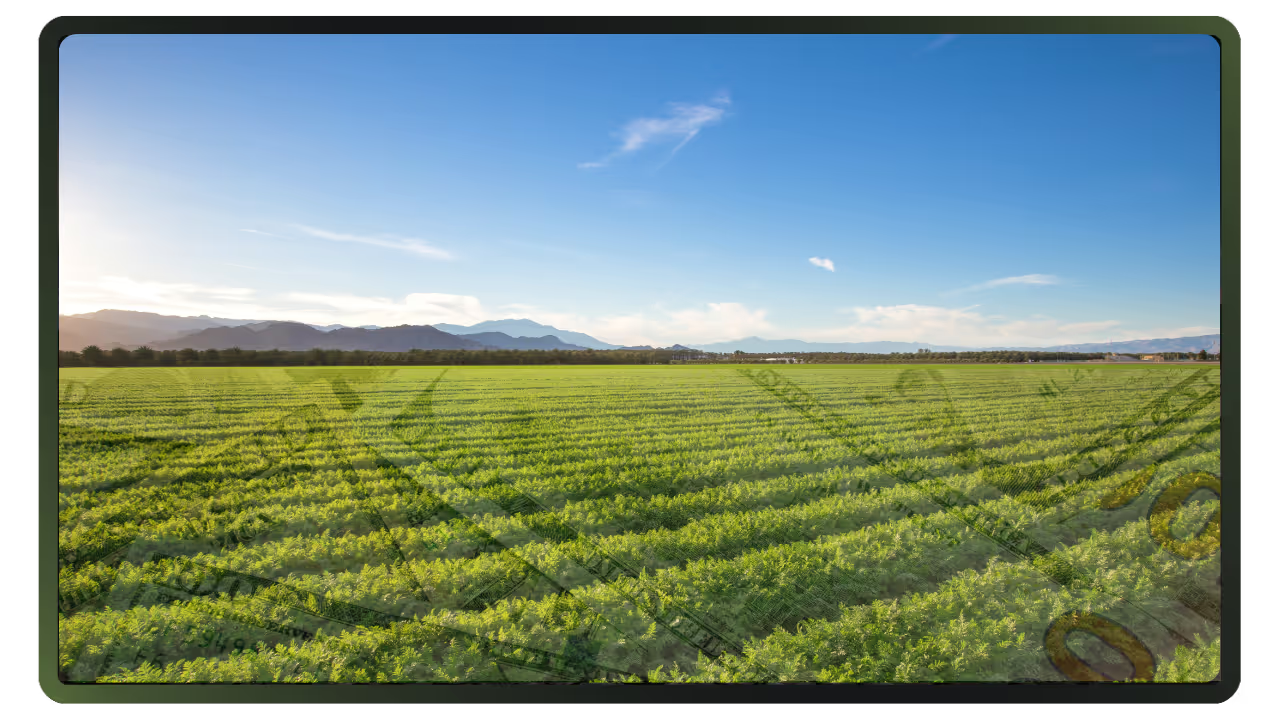
There’s a cold, hard question every farm family needs to ask: Do you want the farm to be a legacy… or just one last big piggy bank you cash out to the kids? Because let’s be real: if you’re the one in control right now, you hold the cards. You can structure things however you want. You can burn it all down or build something that lasts. That’s your decision. But you can’t do both. Too many farm operators are riding into their later years thinking more acres equals more success. Chasing ground. Pushing expansion. But no one's talking about what happens after the chase.
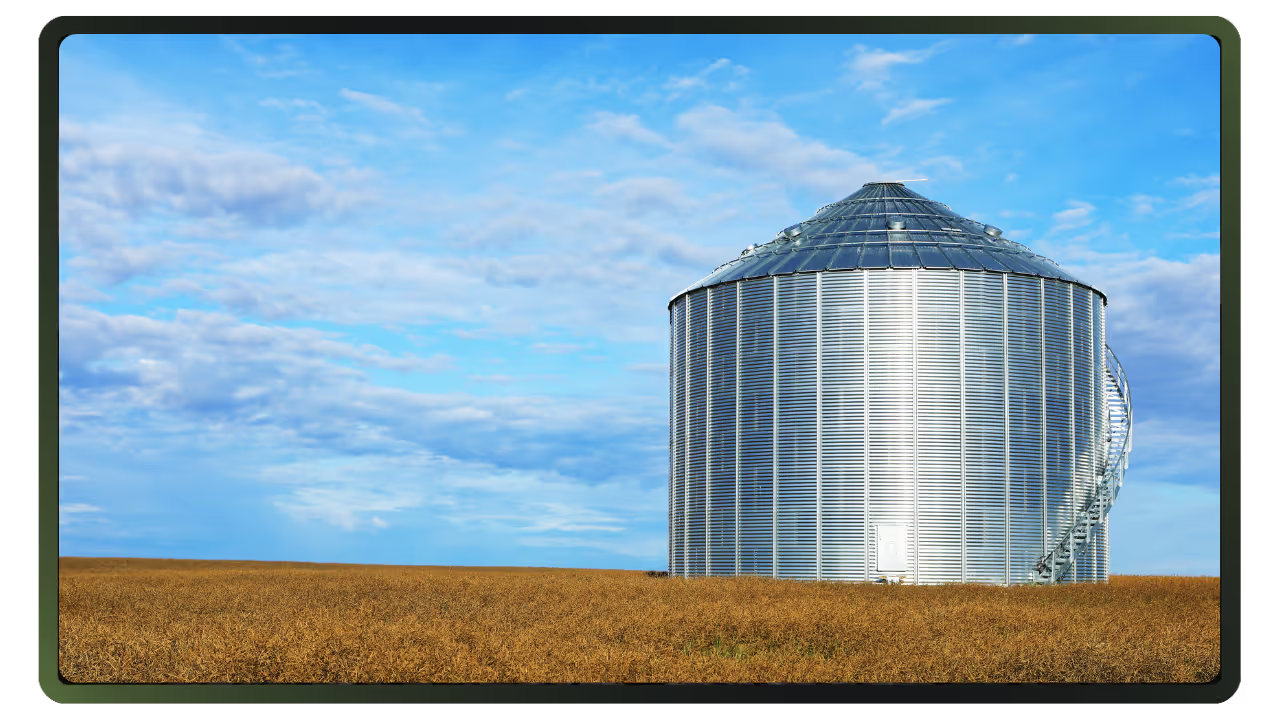
Growing your farm operation feels like a win. More acres, more equipment, more revenue — it’s what every farmer dreams about, right? But here’s a hard truth: 100% growth too fast can destroy your farm. Sounds harsh, but it’s a reality that hits many family farms every year.

As we get older, it’s natural to hold onto the ideas and ways we’ve always done things—especially when it comes to managing assets and running a farm. But the truth is, what worked for us decades ago might actually be holding back the younger generation from reaching their full potential.
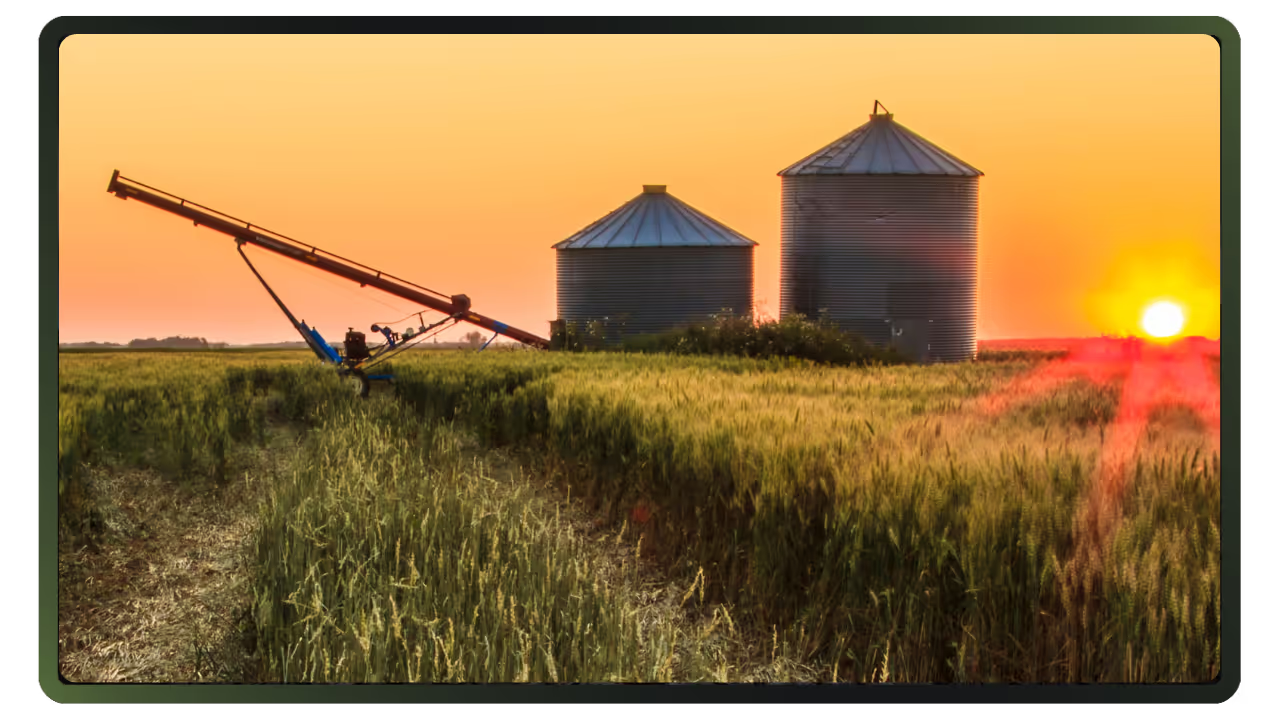
When people ask why so many American family farms are going under, the default answers are predictable: markets, tariffs, interest rates.And while all those factors do add pressure, they’re not the root cause.
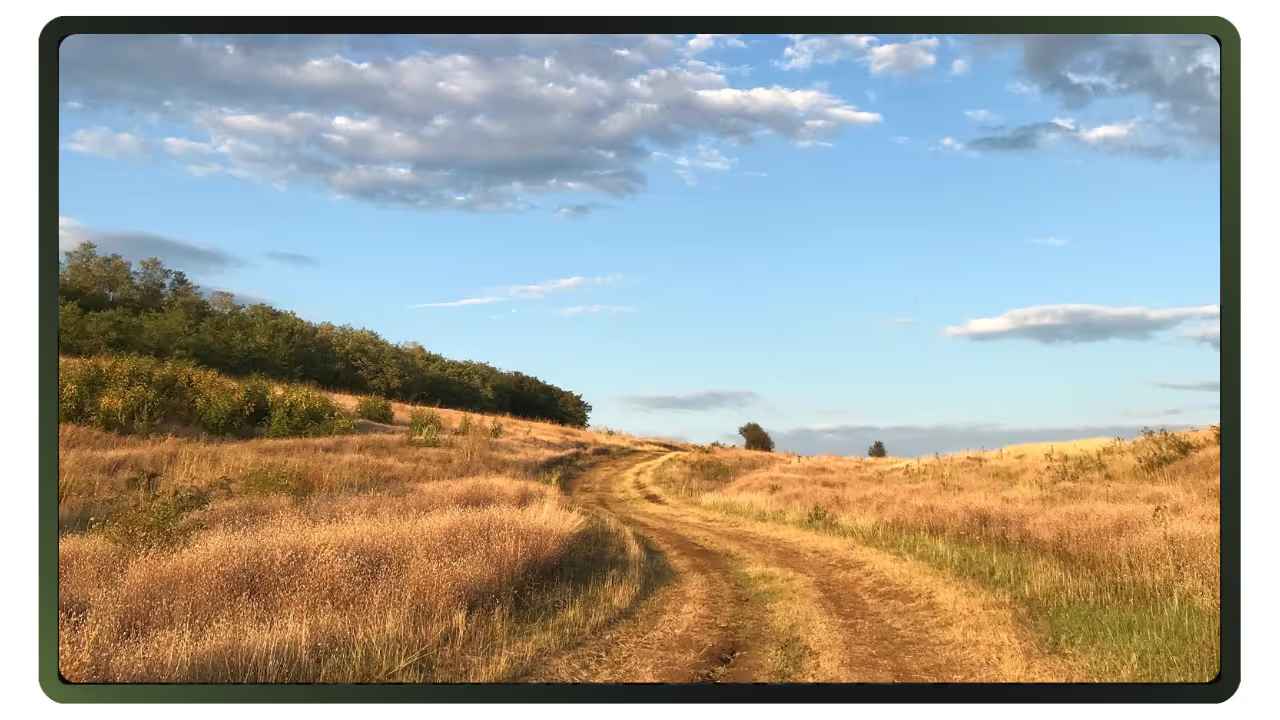
A lot of farmers are still stuck in the old way of thinking. They believe success comes down to just a handful of things—maybe 10 key decisions each year that make or break their operation. But that’s a fantasy. It’s not 1985 anymore. It’s 2025. And in today’s world, there are thousands of variables that can impact your farm. From weather patterns, fuel prices, interest rates, market volatility, input costs, and labor shortages—to generational transitions, financial planning, and debt structure…
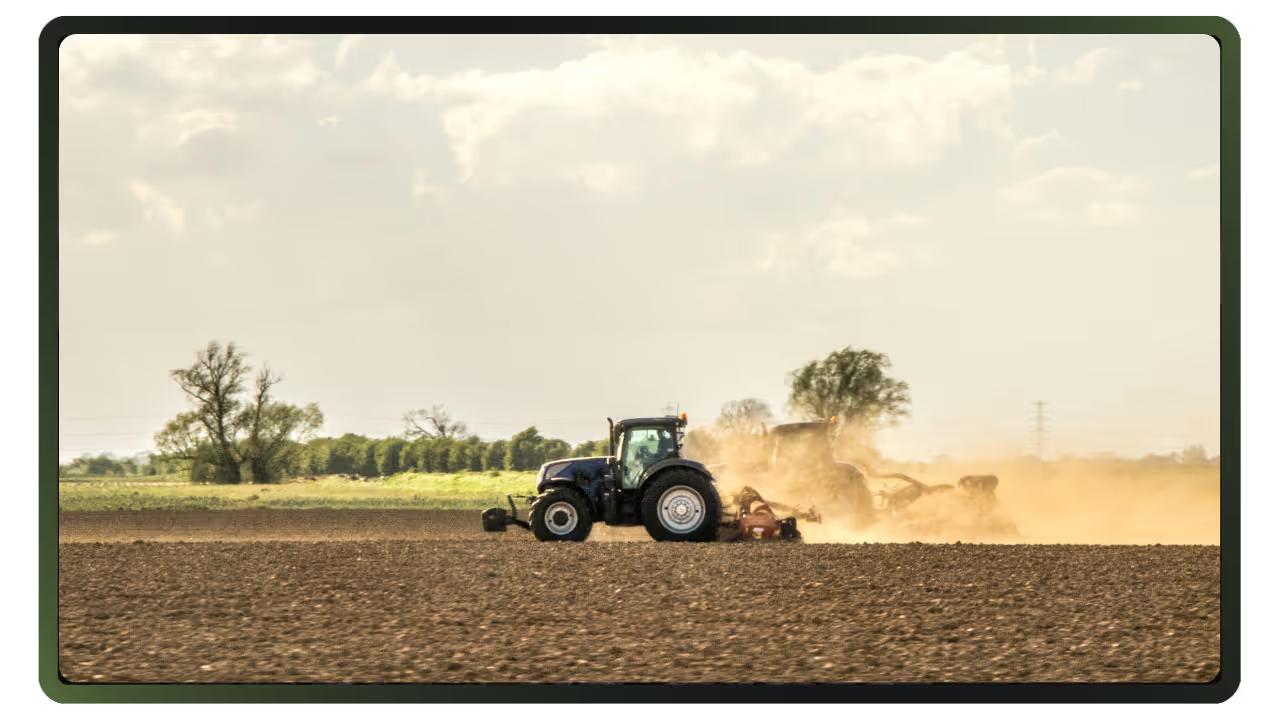
We’ve been warning about this for a while now. And here we are. Farm bankruptcies are climbing again in 2025. And if you're paying attention—really paying attention—you know this isn’t just a blip on the radar. This is the beginning of the reckoning that’s been building for the last five to ten years.
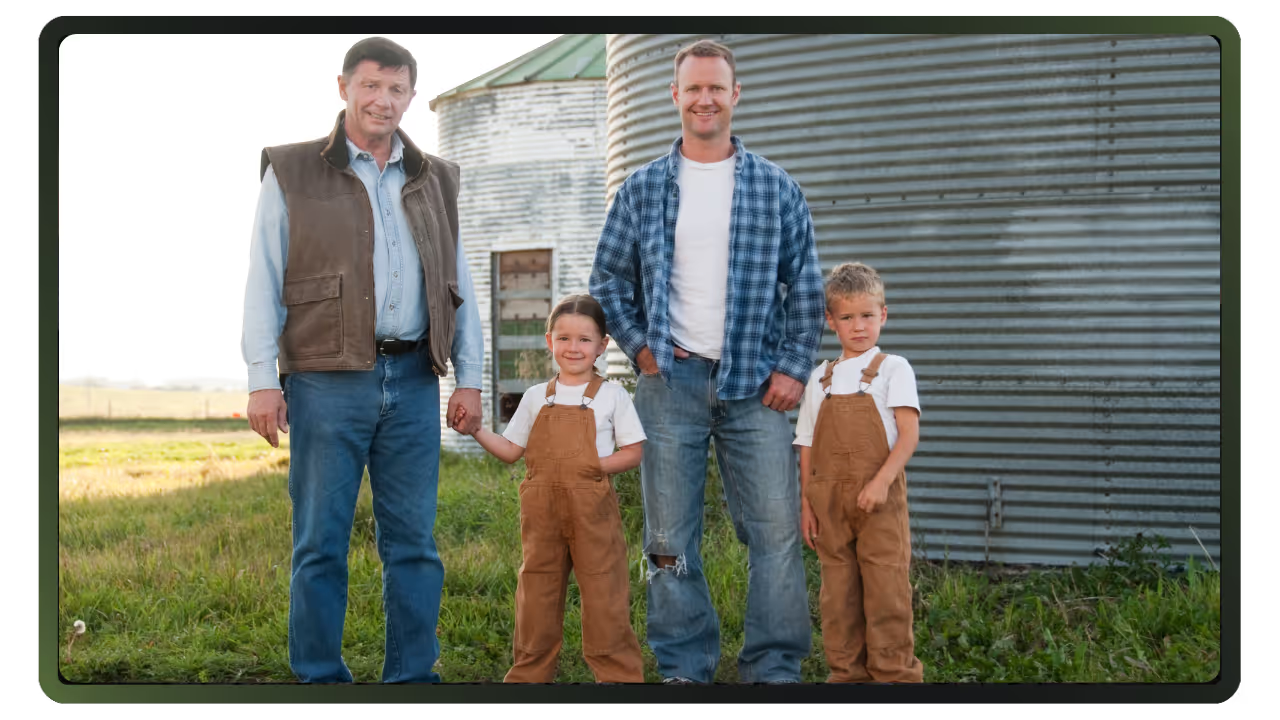
If you’ve grown up in a multi-generation farming family, you know exactly what I’m talking about. There’s a pressure that’s hard to explain unless you’ve lived it. It’s not just about running a business. It’s about carrying the hopes, sacrifices, and decisions of every generation before you. You see the name on the mailbox, the old barns still standing, the land that’s been passed down. But what most people don’t see is the emotional and financial weight that comes with all of it
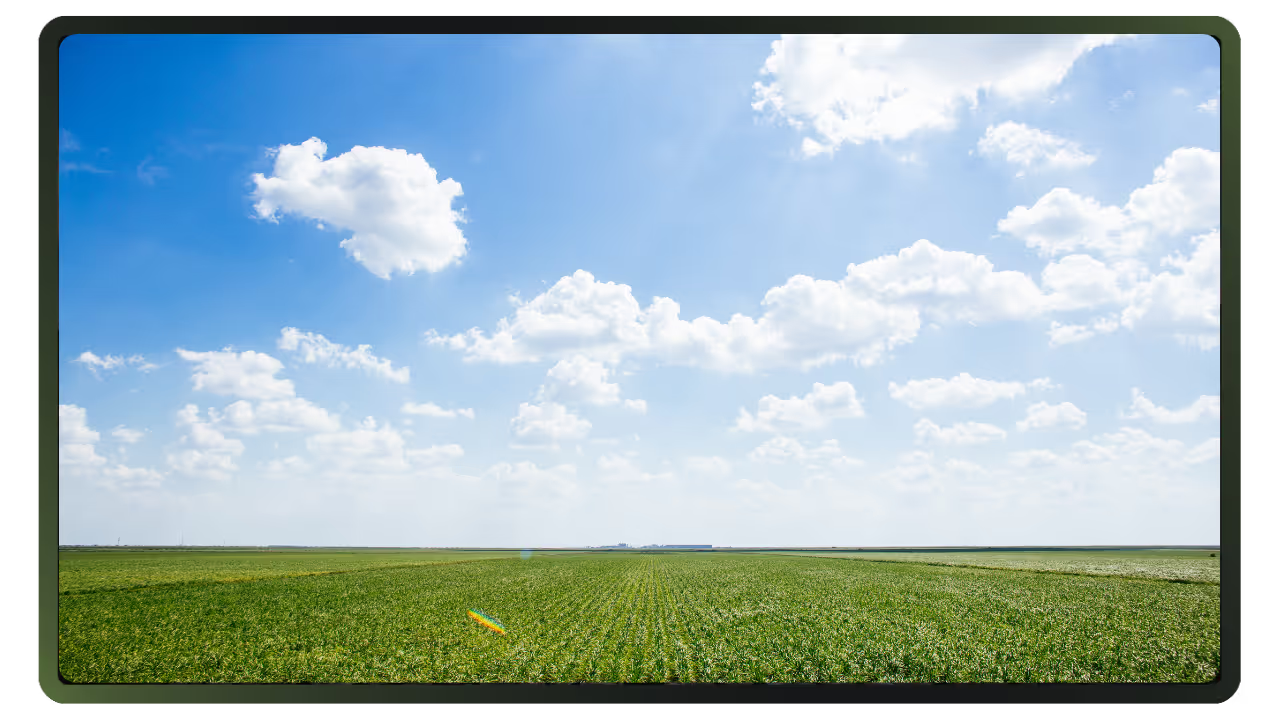
When it comes to big purchases—especially land—too many business owners fall into the same trap: making a 20- to 30-year financial commitment based solely on how things are going right now.

There’s no shortage of people out there claiming they want to help farmers. Consultants, accountants, bankers—you name it. And yet, farm families are still struggling. They’re still under pressure. And many are still operating in survival mode, not strategy mode.So what’s really holding farmers back?
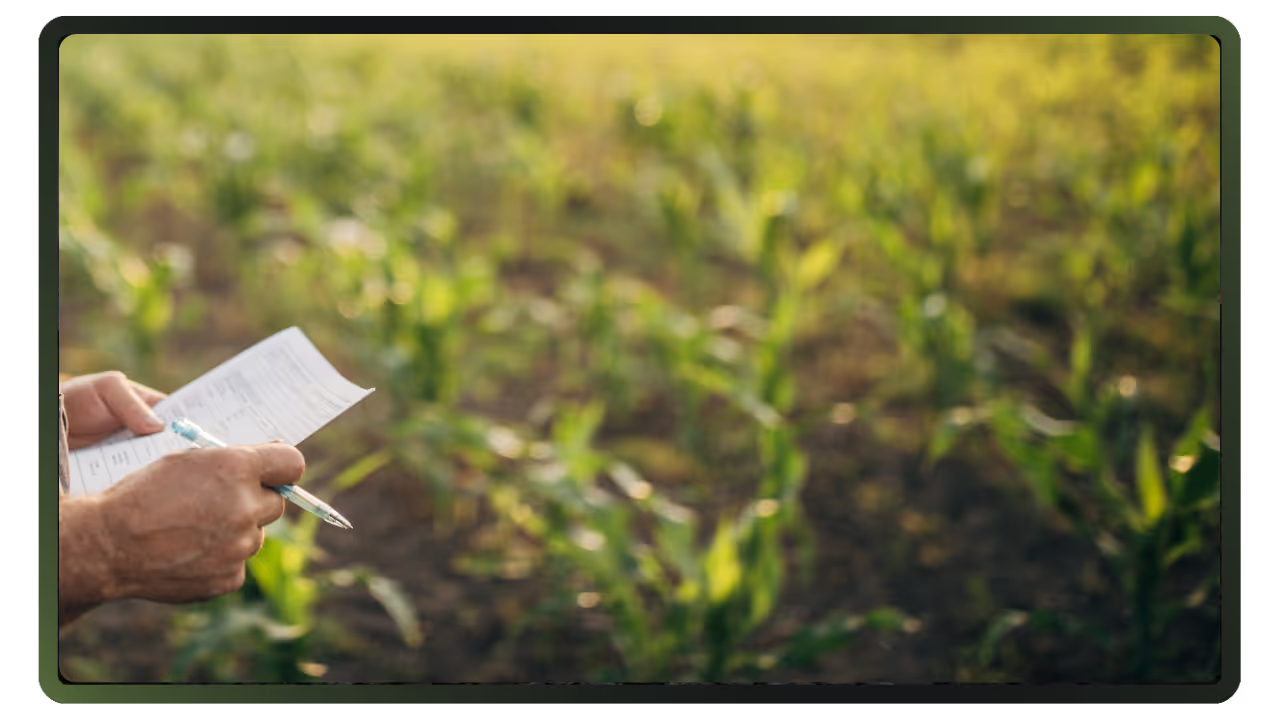
Let’s face it—farming is unpredictable. You’re working with markets, weather, input costs, and labor issues that can shift overnight. But even with all that chaos, one of the biggest risks to your operation might be sitting quietly on your desk (or collecting dust in a file cabinet): your balance sheet. Here are the top 3 mistakes we see farmers making with their balance sheets—and what to do about them.
.avif)
Most American farmers today are essentially driving a truck without a speedometer. Obviously, not in a literal sense—but in the business sense. The reality is, most farm operations are moving forward without any real numbers, without clear gauges, and without a control center to track financial health in real time.
.avif)
In the ag industry, especially within family-run operations, there’s a risk that too many people take—a risk that can cost them years of frustration, stress, and regret. That risk? Staying silent when you should be speaking up. Now, not every farm family struggles with communication, but in my experience—both personally and after working with hundreds of farm operations across the country—I’ve seen firsthand how unspoken conflicts, bottled-up frustrations, and unaddressed issues can take a heavy toll.

This might piss some people off, but I’m going to say it anyway—sometimes, the biggest threat to your farm isn’t the market, the weather, or even competing farms. It’s your own family.
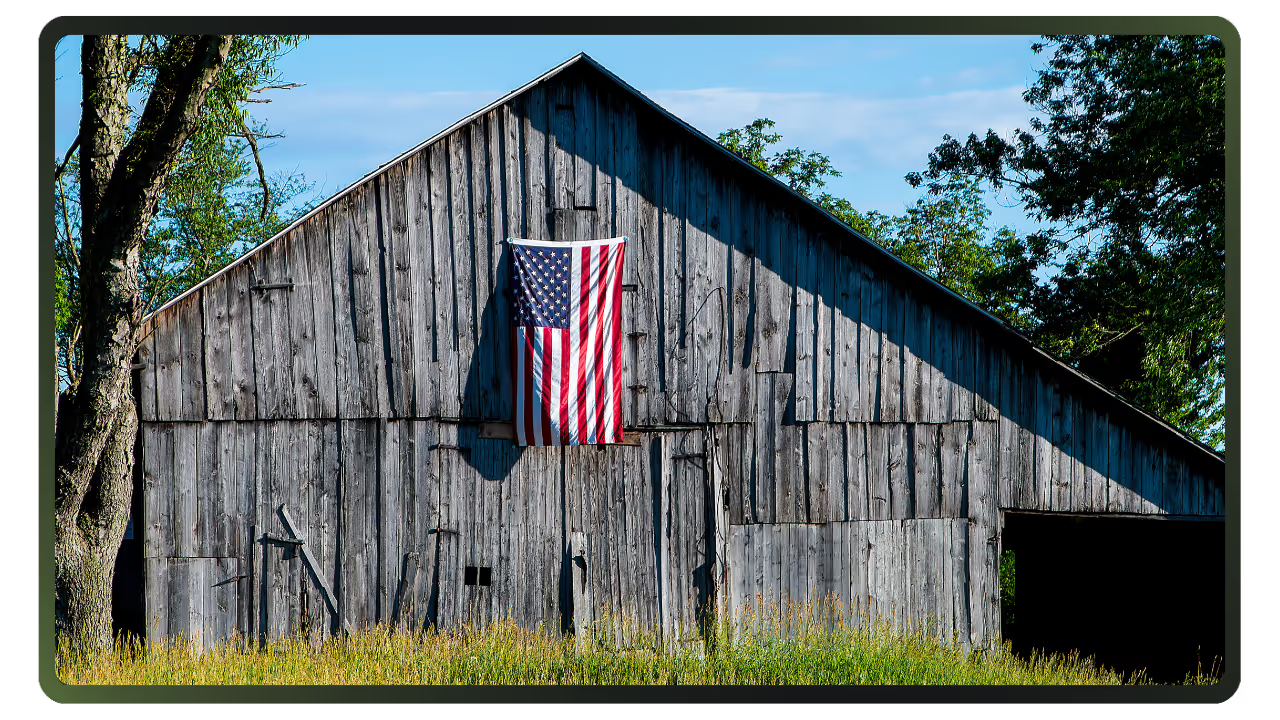
The American farmer has faced challenges since the first plow broke ground. Droughts, floods, market crashes, shifting regulations – you name it, and farmers have weathered it. Despite it all, we’re still here. We’ve made it this far, and we’ll continue to make it. But is survival alone enough? There are two words that define the farmers who are going to thrive in the years ahead: adapt and overcome.
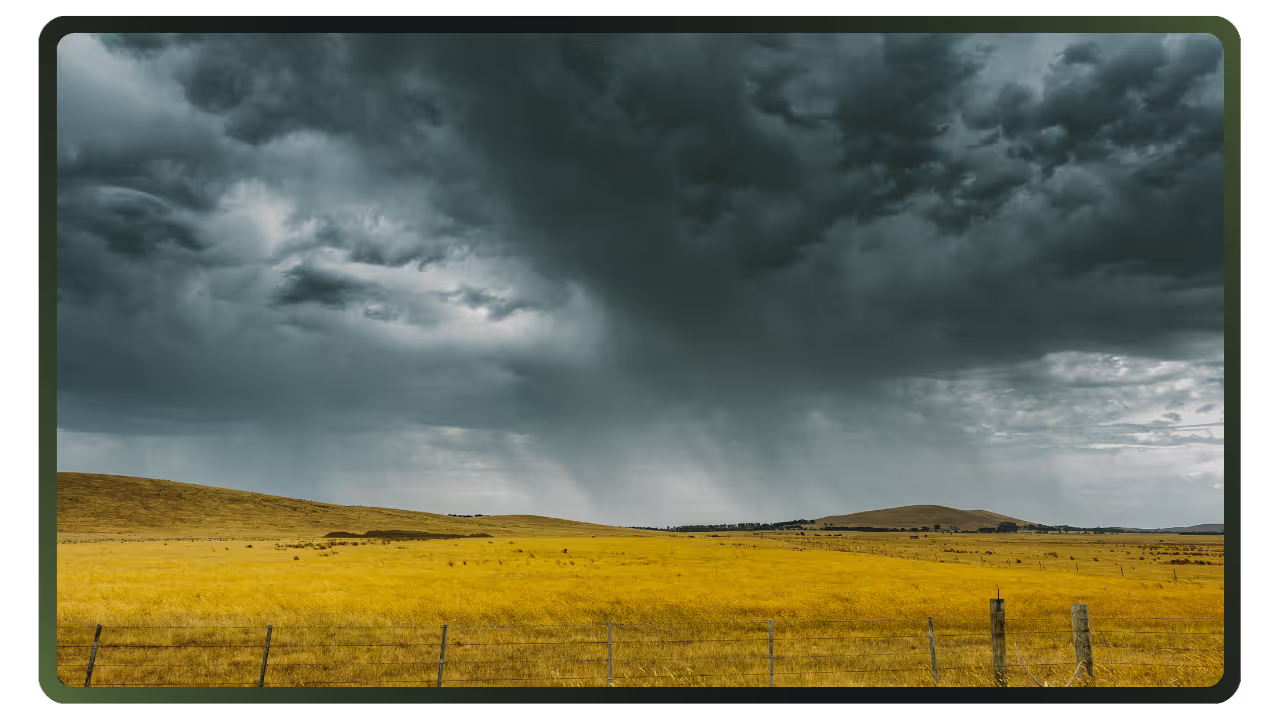
Our team was on a call with a farmer the other day who was struggling with something we’ve seen time and time again—a condition I’d call Post-Traumatic Financial Disorder (PTFD). While not an official diagnosis, it’s a very real challenge that affects countless farmers who have endured devastating financial setbacks. This particular farmer had gone through a traumatic financial experience years ago, and you could hear the fear in his voice. He had developed a scarcity mindset—an overwhelming fear of making changes or taking risks—because he was terrified of losing everything again. Rather than focusing on growth, he was stuck in protection mode, doing everything possible to prevent another financial disaster. I recognized this immediately because I’ve seen it firsthand. My parents went through the same thing. Even decades later, you can still hear the hesitation in their voices whenever money and finances come up. Those past experiences don’t just disappear; they shape decision-making for years to come.
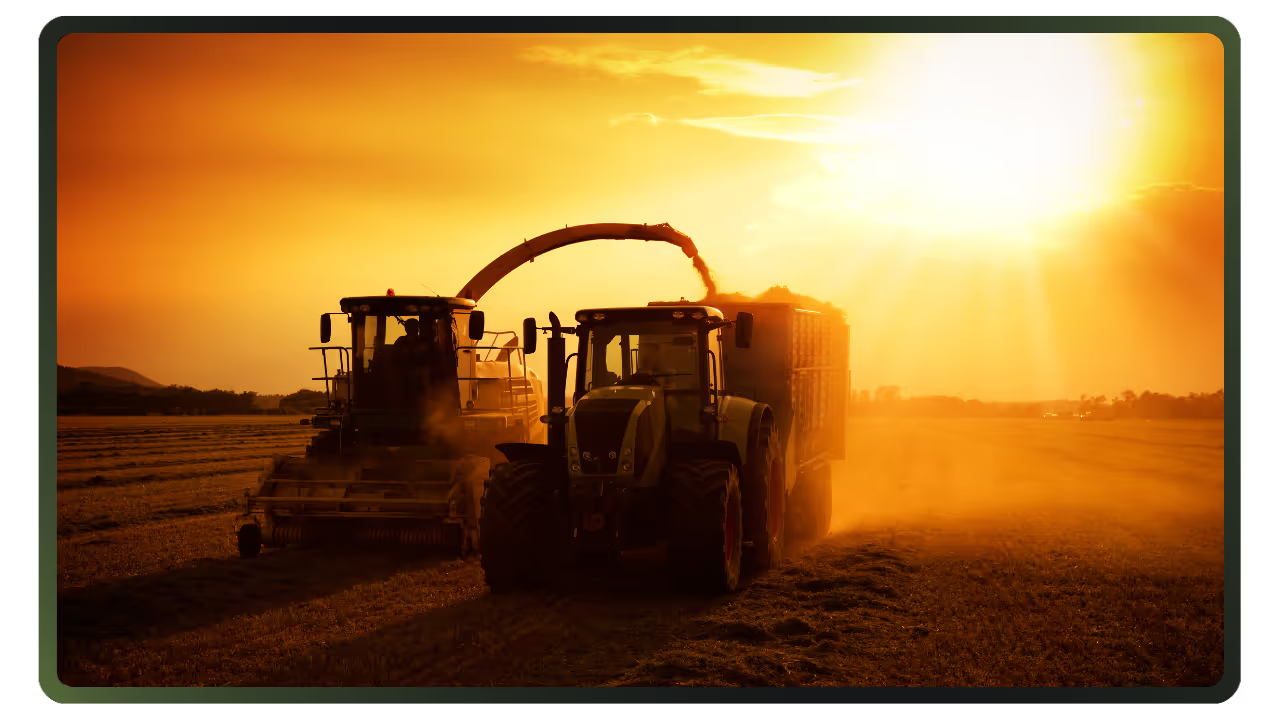
In agriculture, there's a phrase I hear all the time: "I gotta go buy a new tractor to get out of paying taxes." Sound familiar? While this might seem like a smart move at first glance, it's not always the best decision for your farm's long-term financial health. Just because your accountant says you made money and suggests buying equipment to offset taxes, doesn't mean it's the right move for your operation. Let’s talk about why.
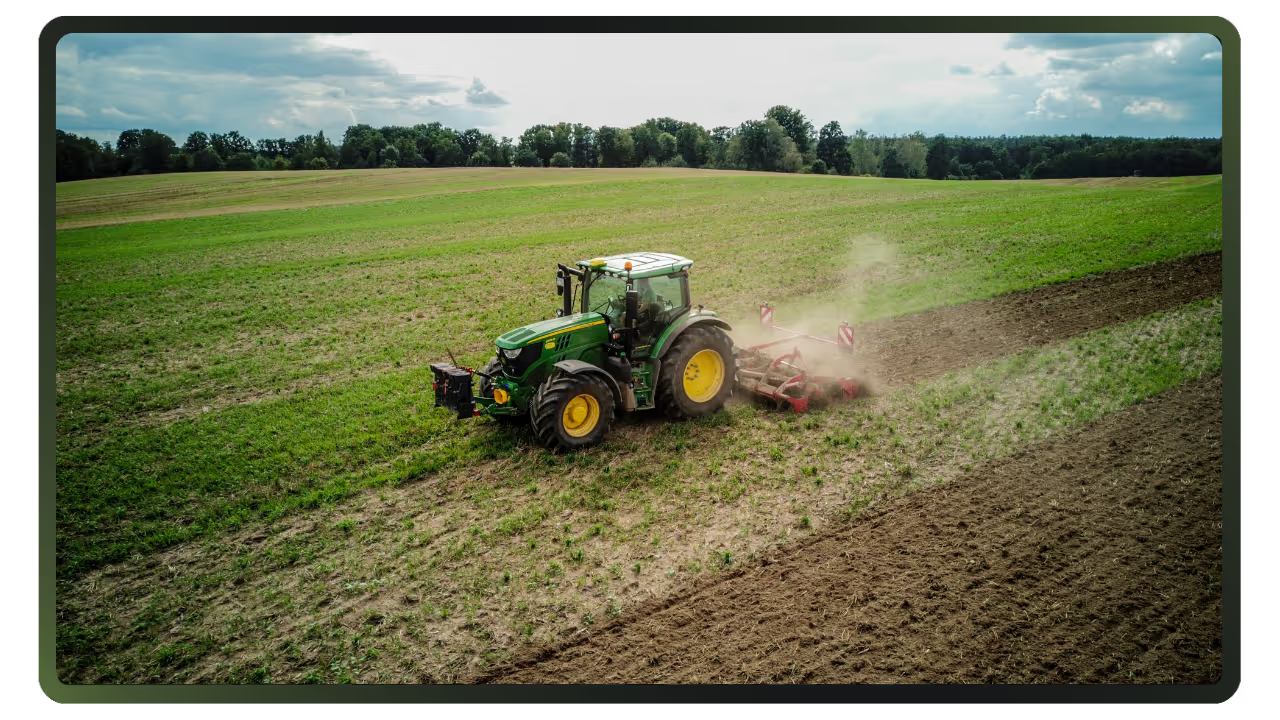
2024 has proven to be an exceptionally challenging year for family farm operations across the country. Margins have shrunk to the point where profits are minimal or even non-existent for many. If you want a different outcome in 2025, it's clear that something needs to change—not just in the market, but in how you run your business. In this blog, we'll dive into the most common mistakes that keep farmers from growing and evolving. These could be the key to turning things around for your operation.

Farm succession is one of the toughest conversations a family can have. Parents want to keep things fair, but fairness doesn’t always mean splitting everything equally. In fact, dividing up farm assets equally among children can often destroy the very operation they’ve worked a lifetime to build.
.avif)
Over the past decade, I’ve worked with hundreds of family farm operations. And one thing has become increasingly clear: you can’t survive off farming alone. The harsh reality is that relying solely on your farm’s revenue, especially during down years, is a risky and unsustainable approach. The most successful farming operations have figured out a way to mitigate this risk by diversifying their income streams.
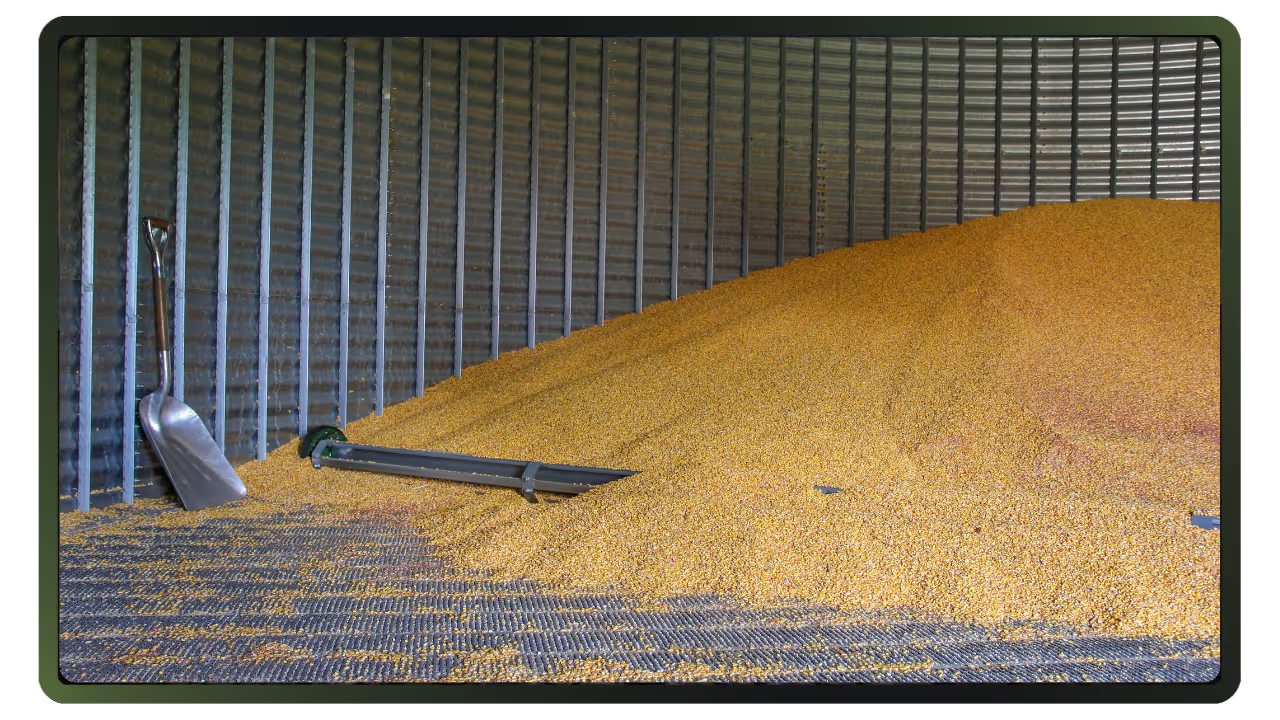
American farmers are facing a financial crisis that’s impossible to ignore. By the end of 2024, projections show that farmers will collectively be $540 billion in debt—and that number isn’t going down anytime soon. The question we need to ask is simple: Why is this happening?
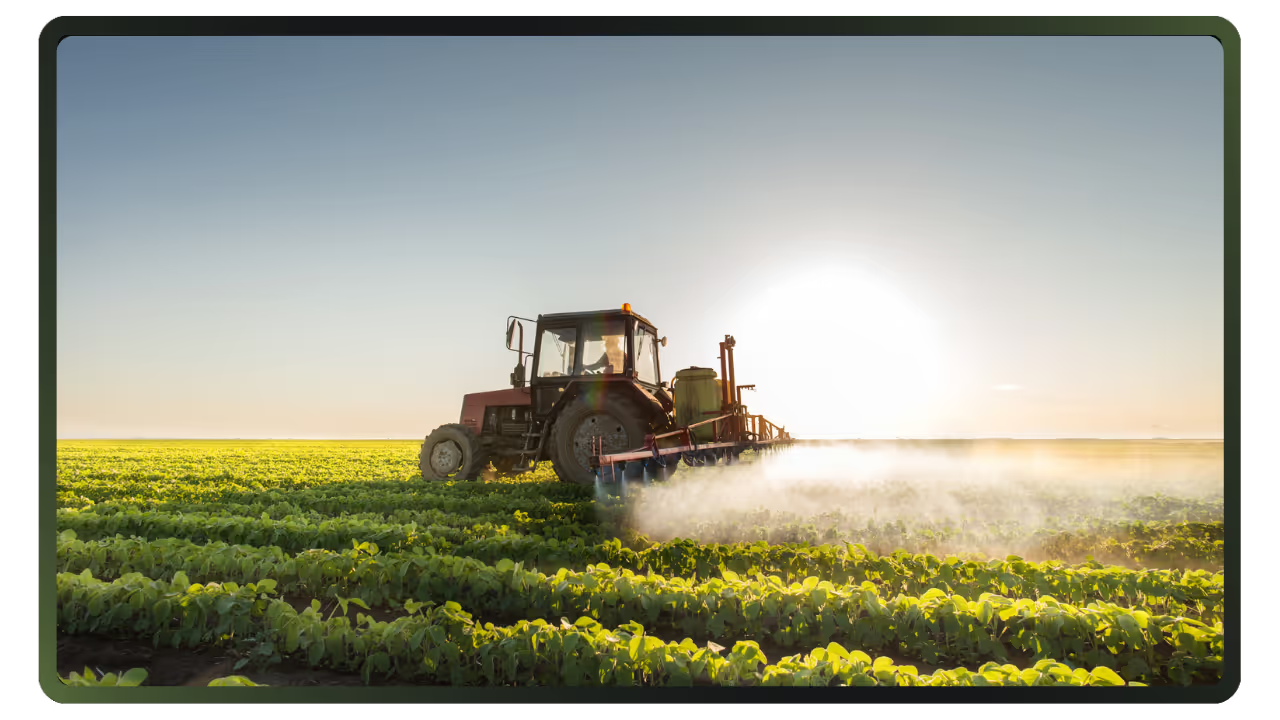
One of the most common things that we hear from farmers and ranchers is, “I’m sick and tired of coming up short on my operating line of credit.” This is something that doesn’t happen few and far between—it’s something that almost every farmer, rancher, or ag business owner has experienced. All are spending thousands of hours working to pay it off at the end of the year—not only because it’s their goal, but because it’s what their bank expects them to do. As the years go on, more and more ag business owners find themselves falling short. Instead of having a clean slate, they’re stuck restructuring operating lines of credit, terming out debt, and hoping and praying for a better year. But hope and prayer, as we know, is not a strategy.

Farming is a demanding profession; it requires relentless dedication and countless hours in the field. In fact, the average farmer in America spends over 3,500 hours annually working within their operation. Want to hear an uncomfortable truth? While thousands of hours are spent earning money, most farmers won’t spend even 100 hours figuring out how to keep it.
.avif)
Running a farm can be incredibly rewarding, but it also comes with its fair share of challenges. One of the most common problems faced by family farm operations is the unnoticed leakage of money. If your farm is generating around $2 million in annual revenue, there’s a strong chance that you are losing between $100,000 to $200,000 each year—money that’s literally slipping through the cracks.

For most people, the holiday season is a time for joy, relaxation, and celebration with loved ones. But for farmers, it often brings a heavy burden of stress. The end of the year means it’s time to settle accounts, face tax obligations, and prepare for the upcoming year’s bills. This unique combination of financial pressures can make the holiday season feel more overwhelming than festive. Let’s dive into why this happens and, most importantly, how you can combat this stress and reclaim your peace of mind during the holidays.

The future of your farm operation is in your hands. 2025 is just around the corner, and this could be the year your farm takes off. But the harsh reality? Between 2017 and 2022, over 150,000 family farms closed their gates for good. The main reason? They didn’t have a clear understanding of their numbers.
.avif)
As Donald Trump begins his tenure as the 47th President of the United States, many farmers, ranchers, and agricultural business owners—often Republicans—are hopeful for positive changes. But can a single presidency truly rescue struggling operations? The reality is far more complex. If you’re banking on Trump—or any politician—to solve your long-term challenges, you may be setting yourself up for disappointment. Here's why the survival and success of your operation depend more on your own strategic thinking than on who's in office.

As the 2024 tax season approaches, the big question looms: Is your farm operation prepared? For many American family farms, tax planning is often an afterthought. Unfortunately, this lack of preparation can lead to unnecessary stress, costly mistakes, and poor financial decisions that could jeopardize the future of the operation. In this blog, we’ll explore common challenges farmers face with tax planning and how proactive strategies can save money, reduce stress, and set your farm up for long-term success.

Mike Vandborg didn’t know what he was getting into when he started building his operation. As a husband, father, and farmer, he’s spent the last eight years doing everything he can to keep his head above water not just for his business, but for his family’s future.
.avif)
When it comes to estate planning, many people assume that having a will in place is enough to pass on their assets and protect their loved ones. Unfortunately, this is a misconception that could leave your family farm exposed to unnecessary risks and delays after you’re gone. In reality, a will is just one part of a comprehensive estate plan. To truly protect your legacy, you need to go beyond a will and establish a full trust. Here’s why a will alone won’t protect your family’s future and how a trust can provide the security and peace of mind you need.
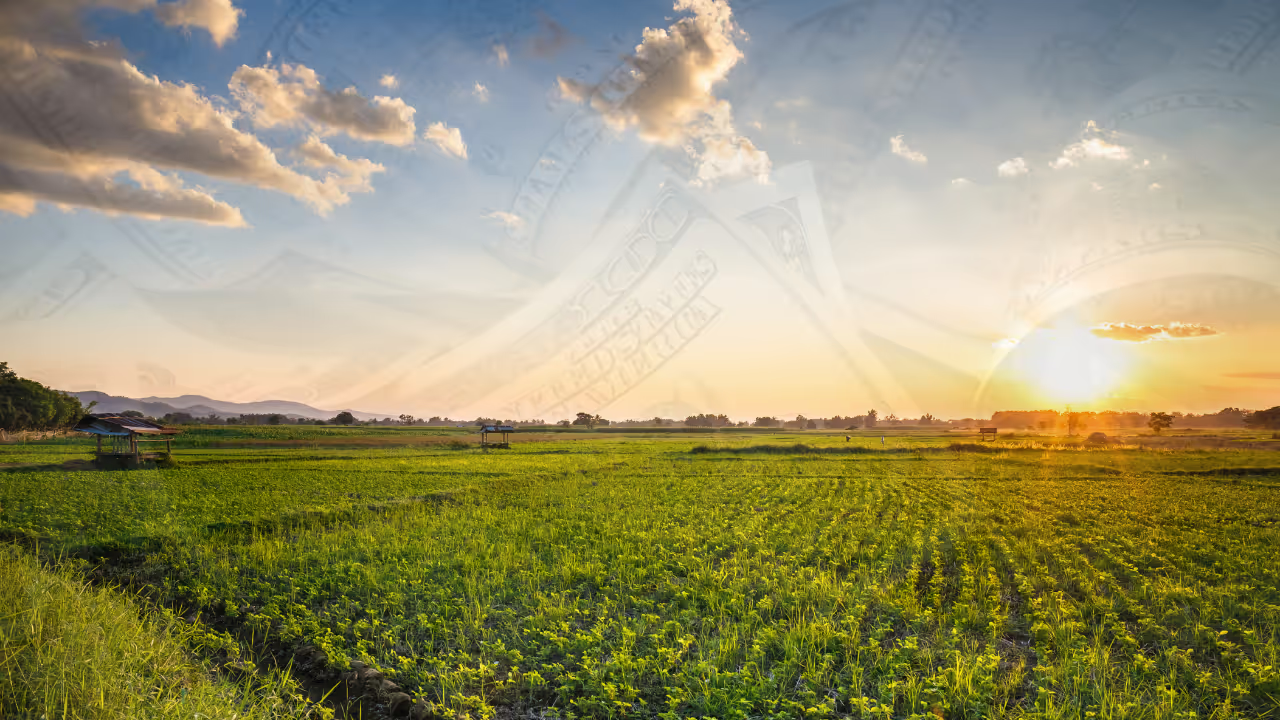
In agriculture, there’s a common belief: farming more acres equals more profit. It sounds logical—more land should bring in more revenue, right? But in reality, this mindset can often backfire. Many farmers fall into the trap of thinking that expanding acreage is the key to increasing their bank accounts, yet, for those who aren’t carefully tracking their financials, more land can actually lead to more risk.
.avif)
In today’s economy, it’s no secret that farmers, ranchers, and agricultural business owners are facing significant financial challenges. Concerns include fluctuating prices of goods, rising operational costs, and the added difficulty of working with banks that may themselves be navigating troubled waters. In this blog, I want to discuss the key factors that can help you maintain a strong relationship with your bank during these challenging times.
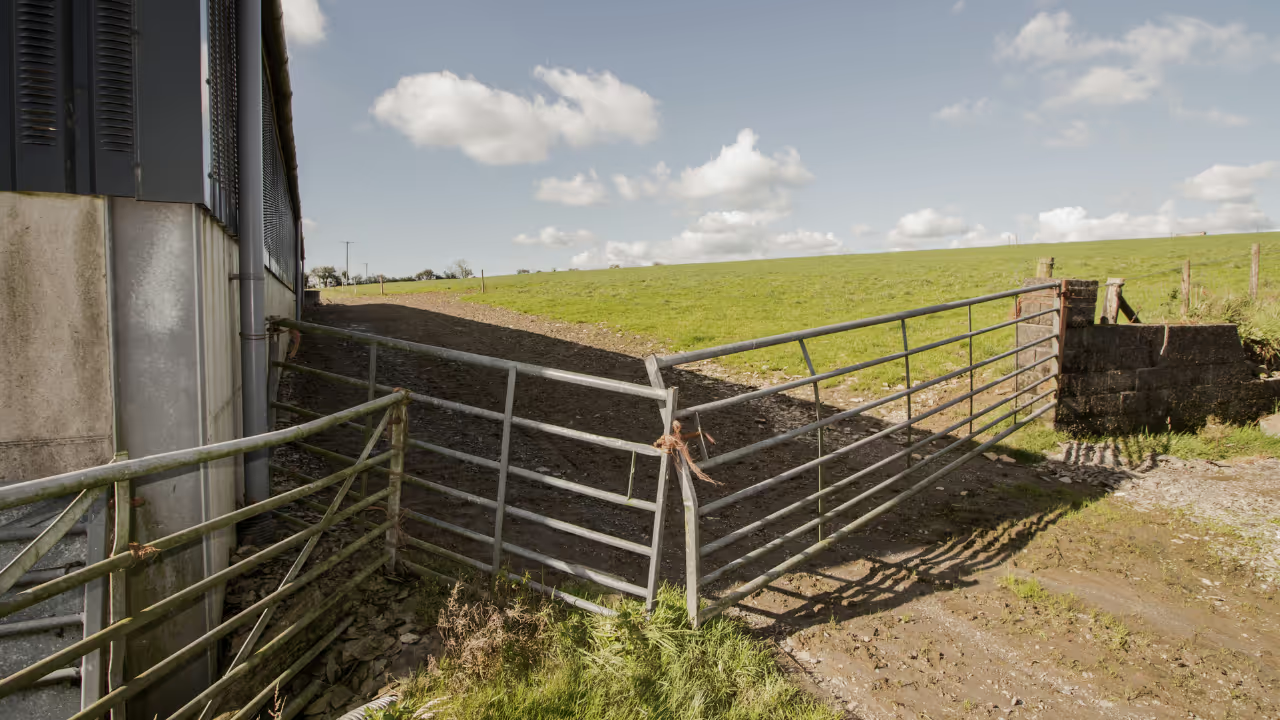
As the farming industry continues to evolve, one of the biggest challenges we face is the resistance to change. While farming has historically passed from one generation to the next, the mentality of “this is how we’ve always done it” has become a major obstacle to growth and innovation. This mindset, deeply rooted in tradition, is holding farms back and is the #1 reason so many farms end up going bankrupt.
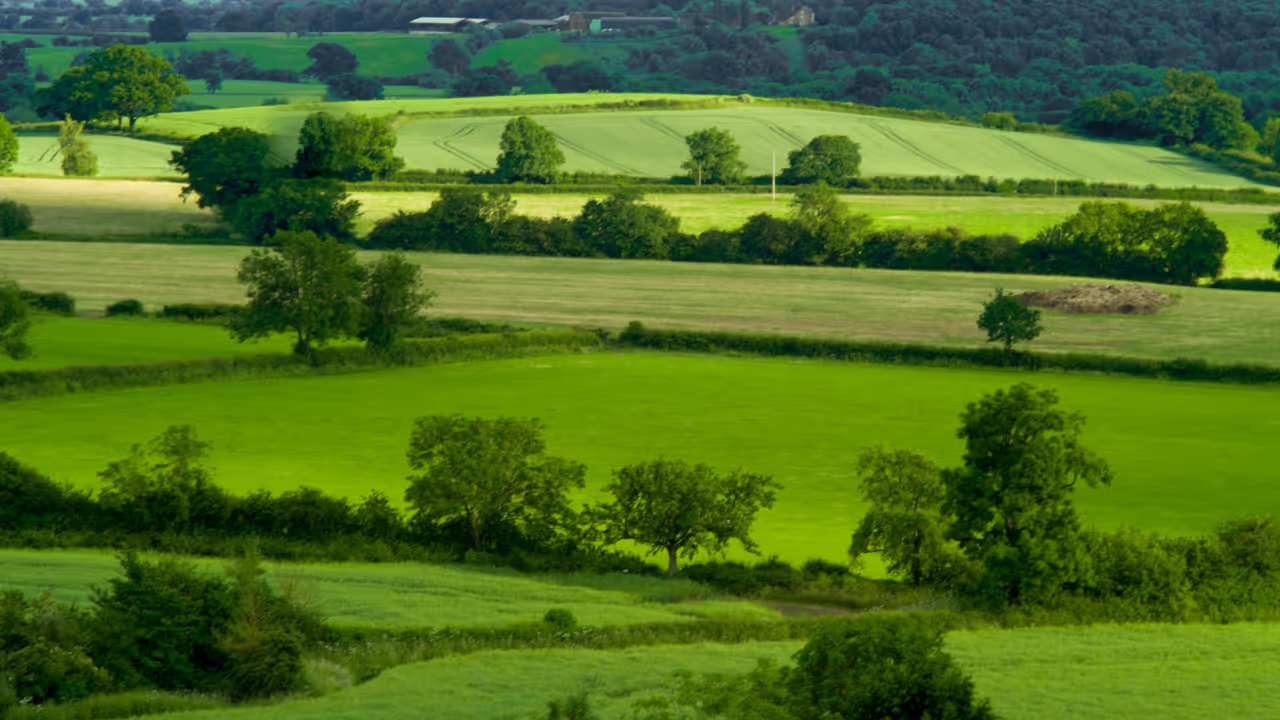
If you’re part of the first or second generation in farming, you probably understand the deep connection to the land. It’s more than just dirt—it represents your legacy and your family’s future. So, when a piece of ground comes up for sale, especially if it’s right next to your operation, it’s hard to resist. I’ve seen it time and time again: the urge to buy land, even when the finances don’t quite add up.

Do you feel like your bank has your back against the wall? If so, you are not alone. After working with over 300 family farm operations in the past five years, I can tell you with full confidence that many people feel this way. There are huge gaps in knowledge when it comes to understanding how the bank views your operation, interprets your numbers, and makes decisions. I’ve seen it firsthand. If you’re tired of feeling this way—which I’d bet you are—then this is the blog for you. I’m going to go over three points that will help you rethink your relationship with your bank. By the end of the blog, you’ll have a better understanding of how the bank operates and how you can leverage this knowledge to your and your farm operation’s advantage.
.avif)
As a farmer, you hold more than just the title to your land—you hold the future of your operation, and ultimately, your family's legacy. The choices you make today will decide whether your farm continues to thrive for generations or die with you.
.png)
When it comes to family farms, the stakes are extremely high, and the decisions you make today can shape the future for generations to come. If you’re a farmer, you might already know that there’s more to managing your farm than just planting crops and tending to livestock. One critical aspect that almost always gets overlooked is estate planning—specifically how you divide your assets among your children.

Your entire life, you’ve grown up working on the family farm, eager to take it over one day. Now, imagine you’re 20 years old, fresh out of school, and more than ready to return to the family farm. Your parents tell you that you’ll start getting responsibilities in a few years, and eventually, the farm’s assets will follow. Sounds promising, right?
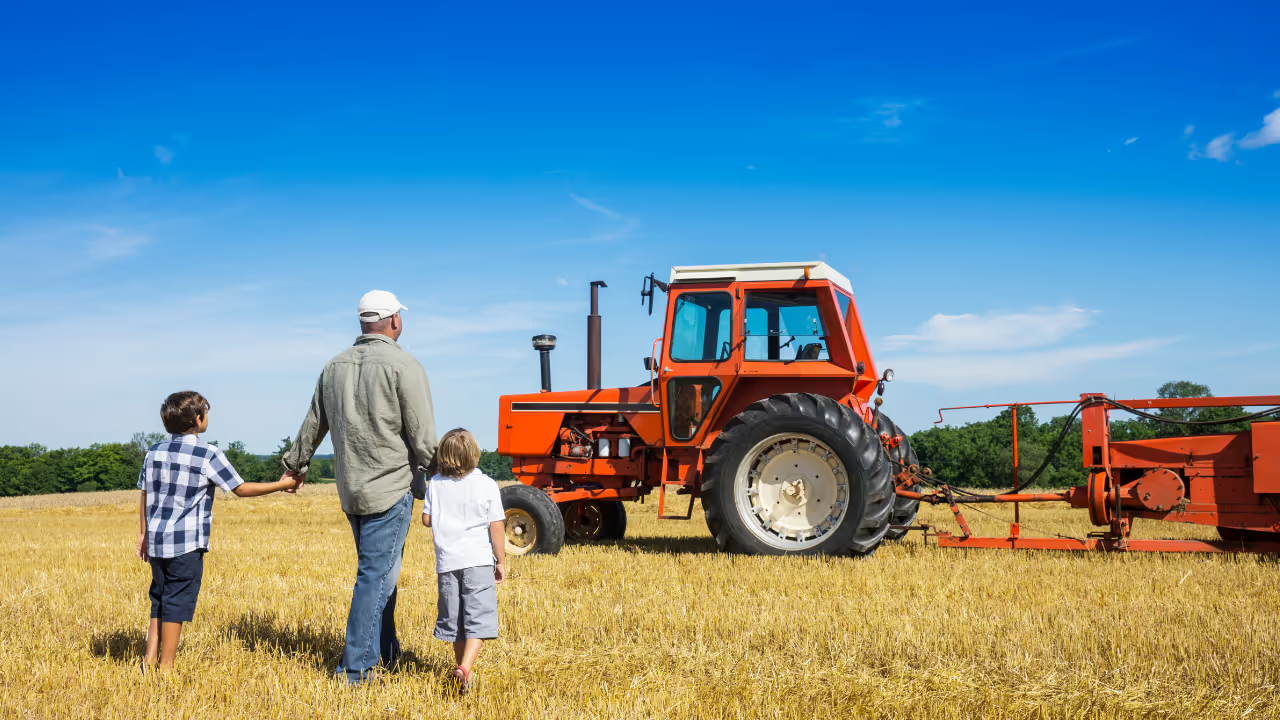
Deciding how to pass down your family farm can be one of the toughest decisions you face. Many farm owners want to be fair and divide the farm equally among their children. While this seems like the right thing to do, it can sometimes lead to problems that might put your farm’s future at risk.
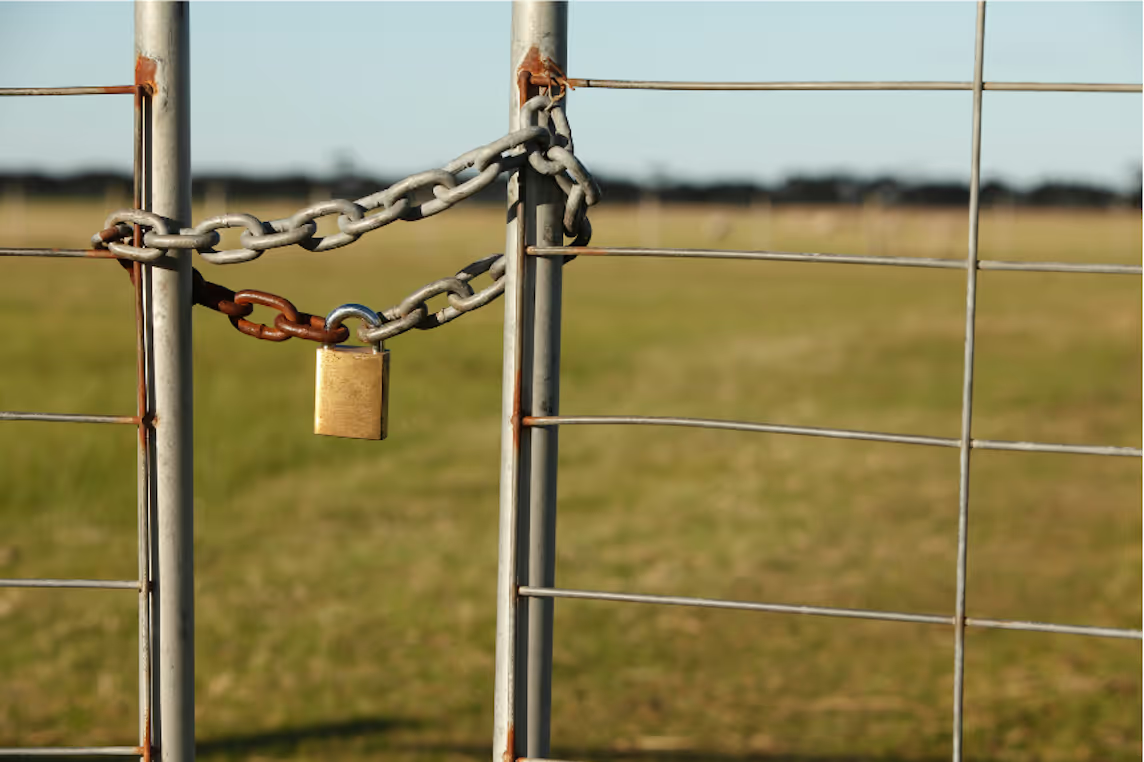
Every year, countless family farms face the heart-wrenching reality of closing their doors. Understanding why this happens can be the first step toward ensuring your farm doesn’t become another statistic. Here are the three critical reasons most farms fail—and what you can do about them:
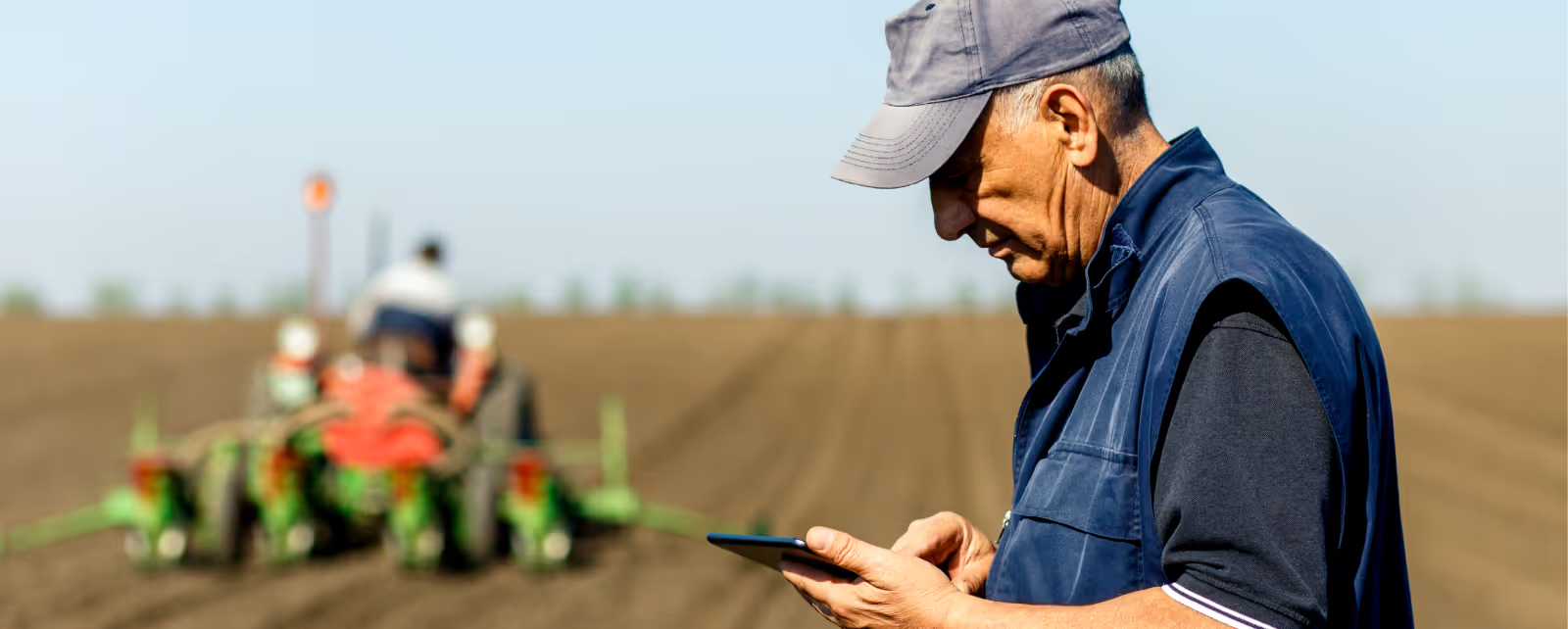
Are you prepared to start tax planning? Unfortunately, 99% of the agriculture industry is not. In fact, the majority of farm operations I speak with don’t have their finances organized at all. They begin tax planning close to the deadline, which leaves them stressed, anxious, and unable to enjoy the holidays. This is what we call reactive tax planning, and it has led to the downfall of many farm operations.

Every farmer I talk to worries about their income. Some are struggling to make enough money, while others fear that a good year could end at any moment. I get it—I've been there too.
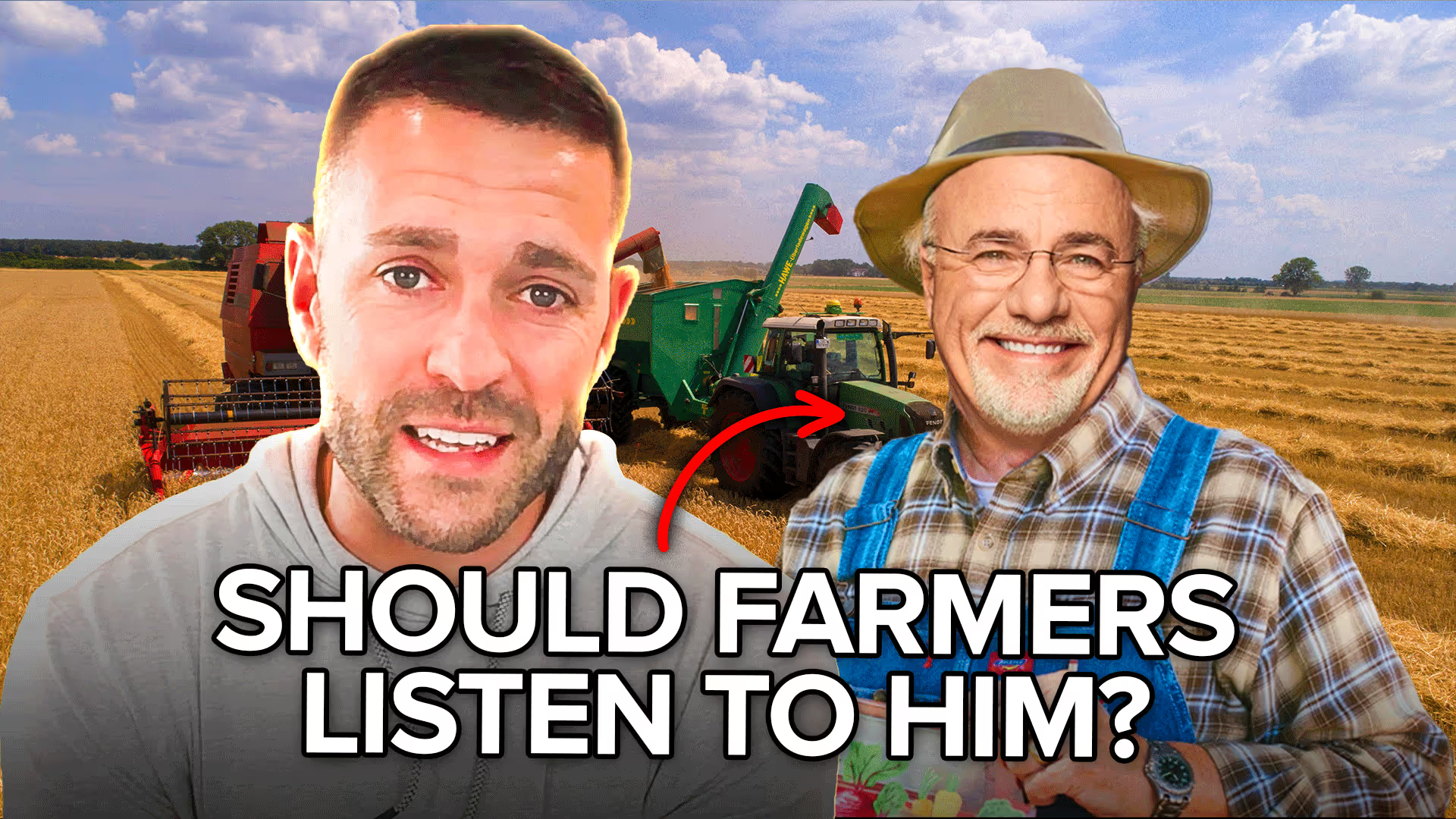
Dave Ramsey’s philosophy is clear: debt is bad, and his advice on paying it off works well for W-2 employees. But is this approach suitable for everyone, especially farmers and ranchers? I've had several members compare me to Dave Ramsey, but I approach financial advice very differently, especially when it comes to the ag industry.

Feeling frustrated as you watch your neighbors succeed while you’re struggling? It might be time to face the tough truth: your financial practices could be the problem. Some farmers thrive because they meticulously track every dollar, while others are just hoping for the best and risking failure. If you’re not keeping a close eye on your finances, you’re making a costly mistake. Are you ready to take control and join the top 25% who manage to thrive no matter the market conditions?

In this blog, we dive into the tough decisions family farmers face when it’s time to pass down the operation to the next generation. We talk about the common issues, like dividing assets among kids, and share practical tips to keep the farm sustainable. By planning ahead and encouraging entrepreneurship within the family, you can protect your farm’s future and ensure your legacy lives on for generations.